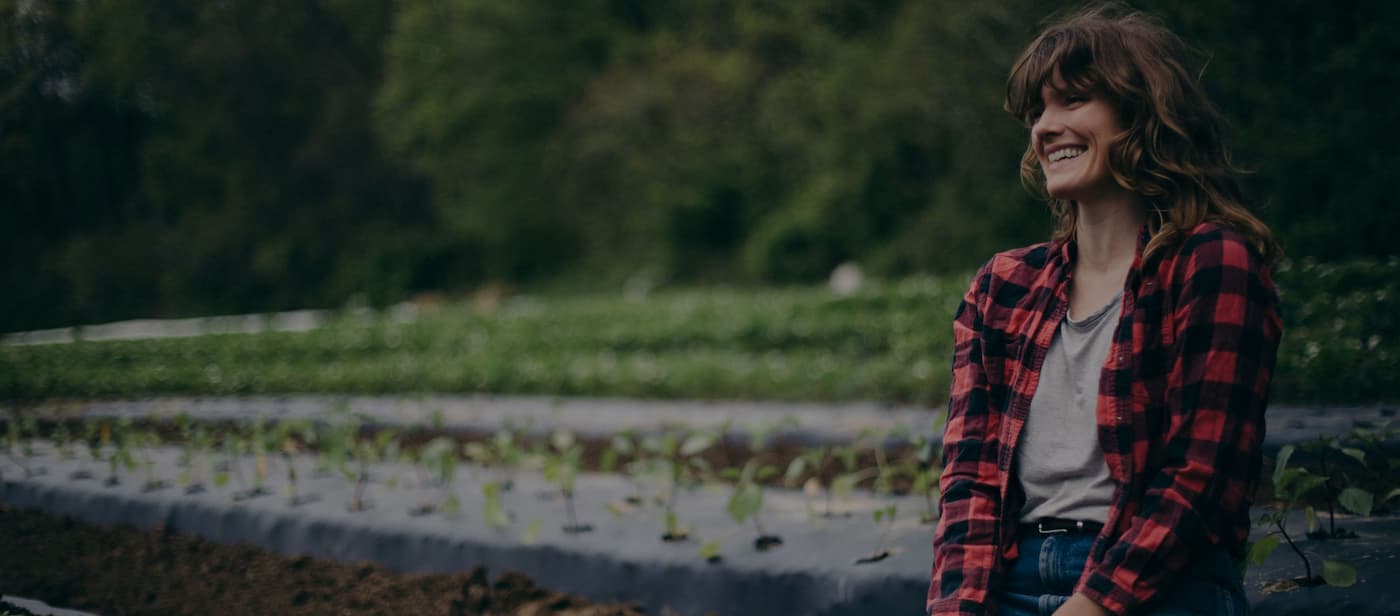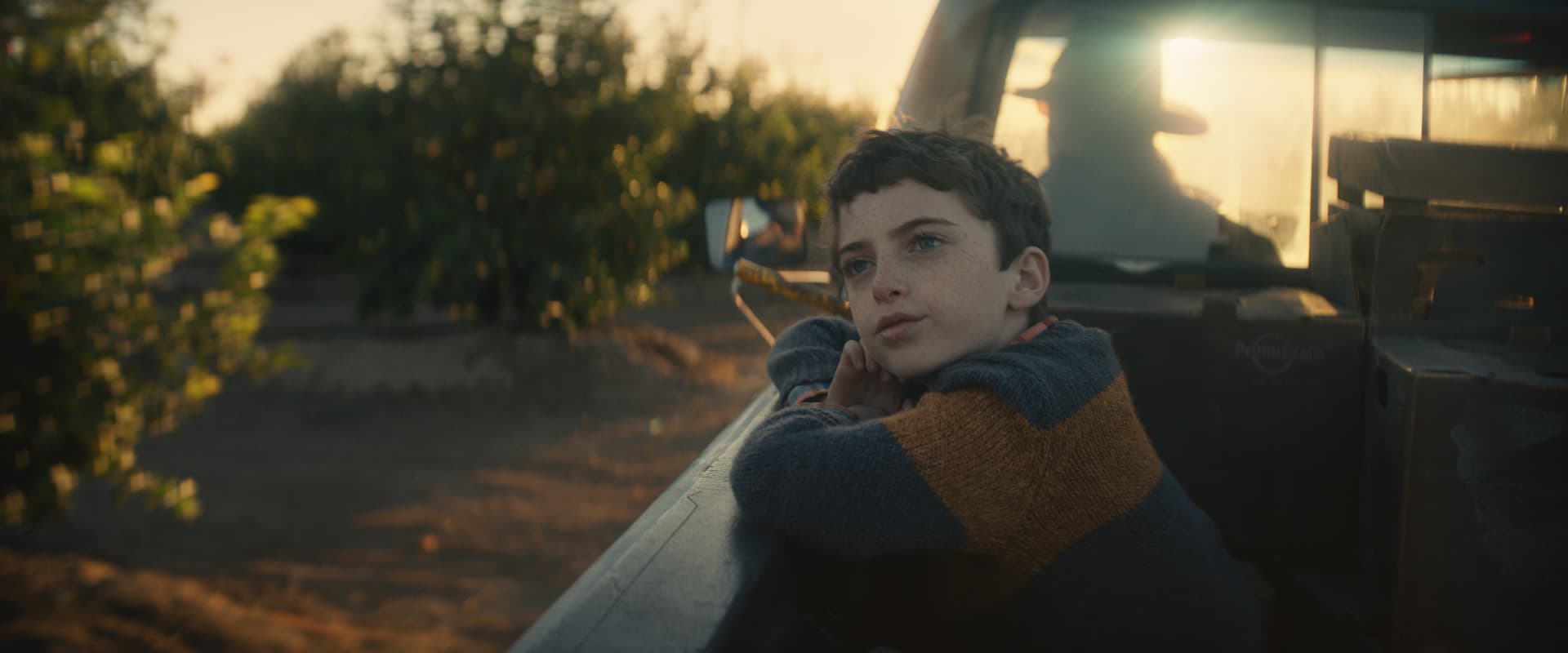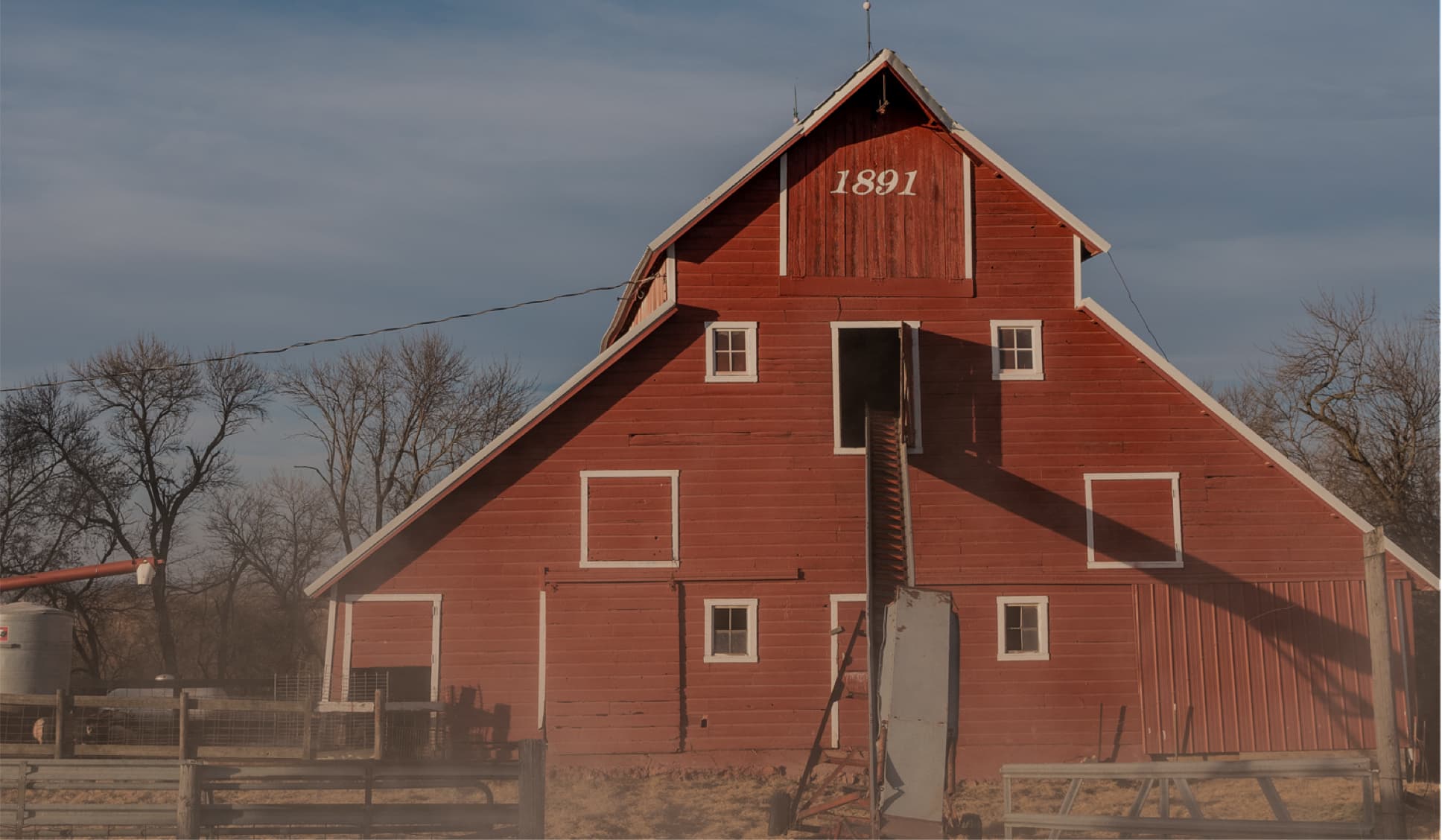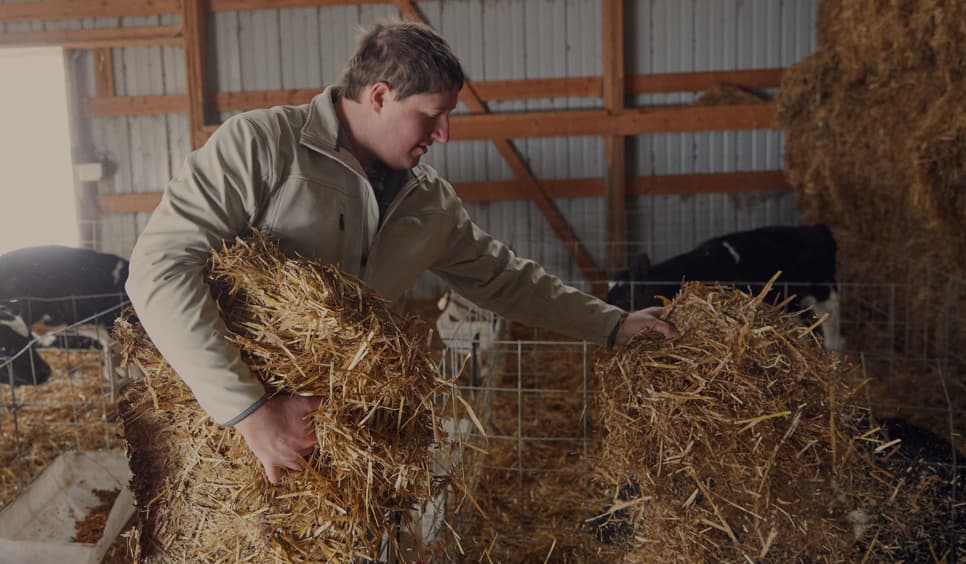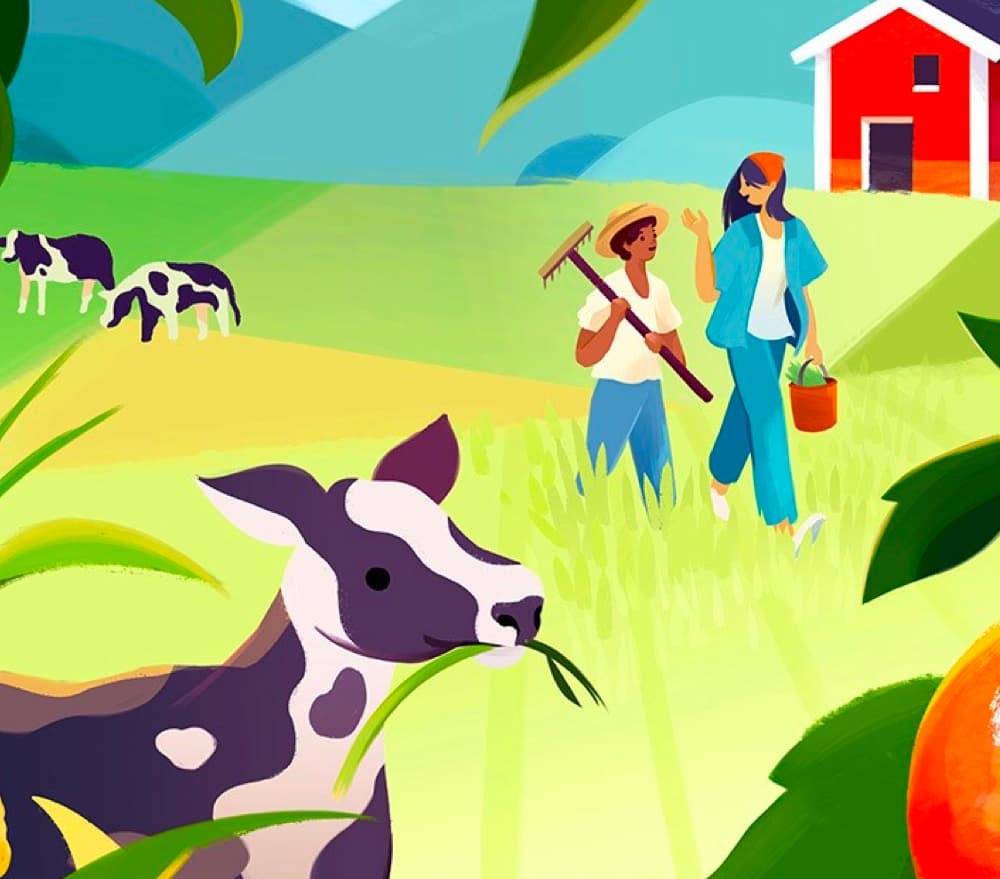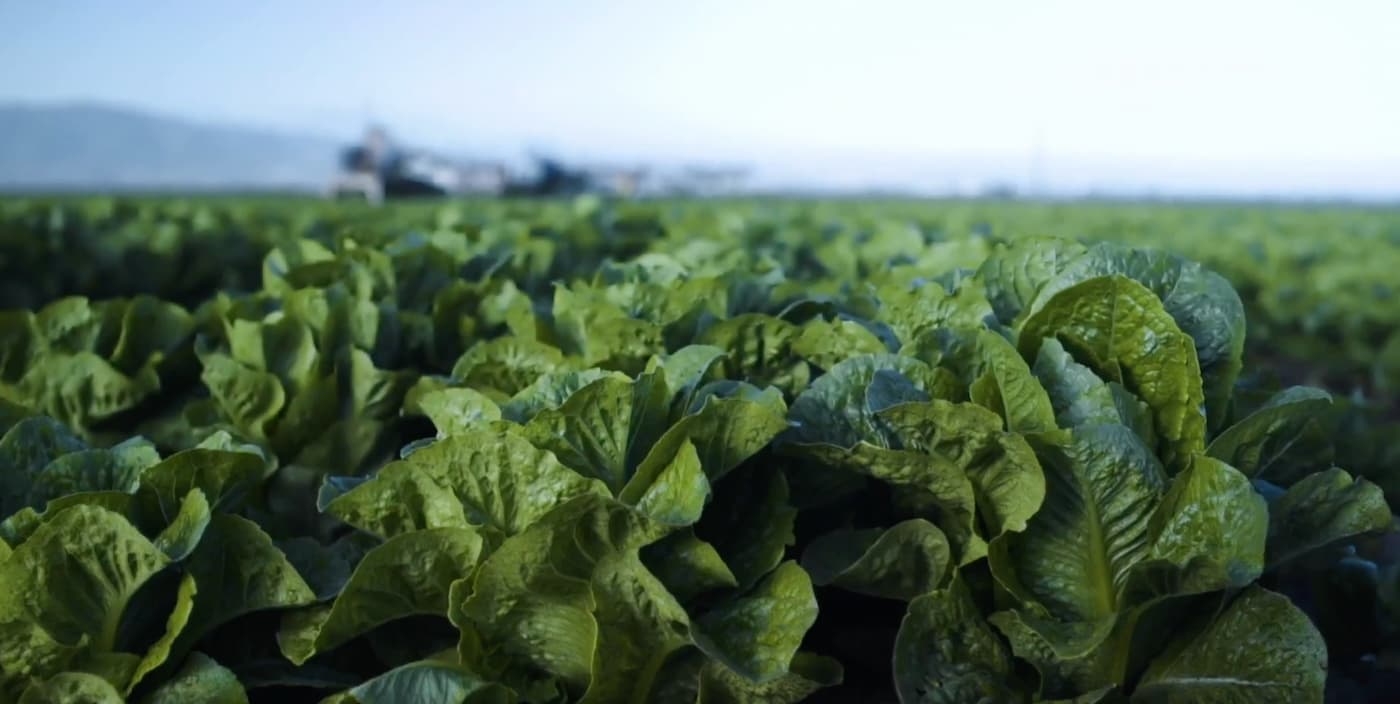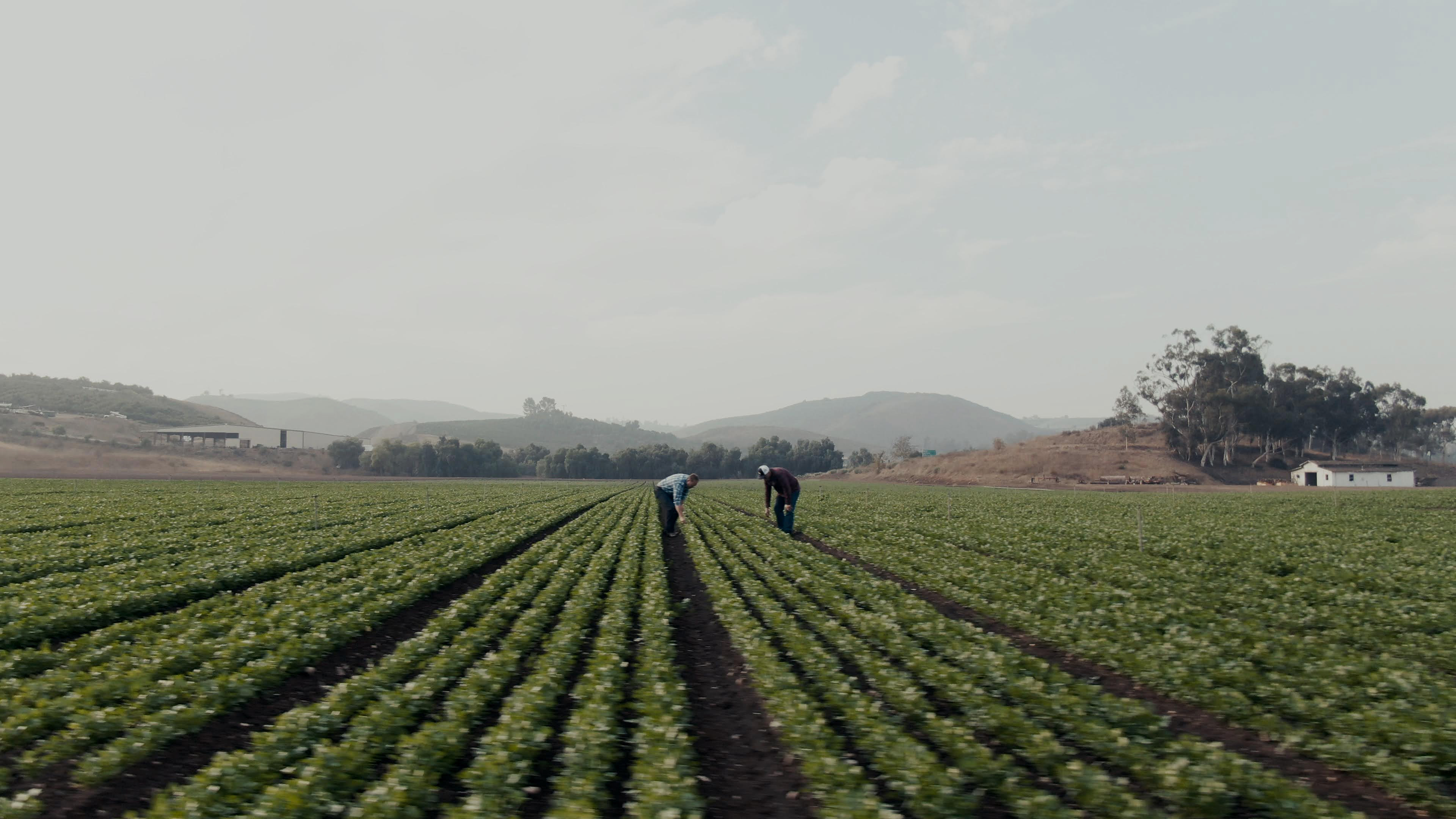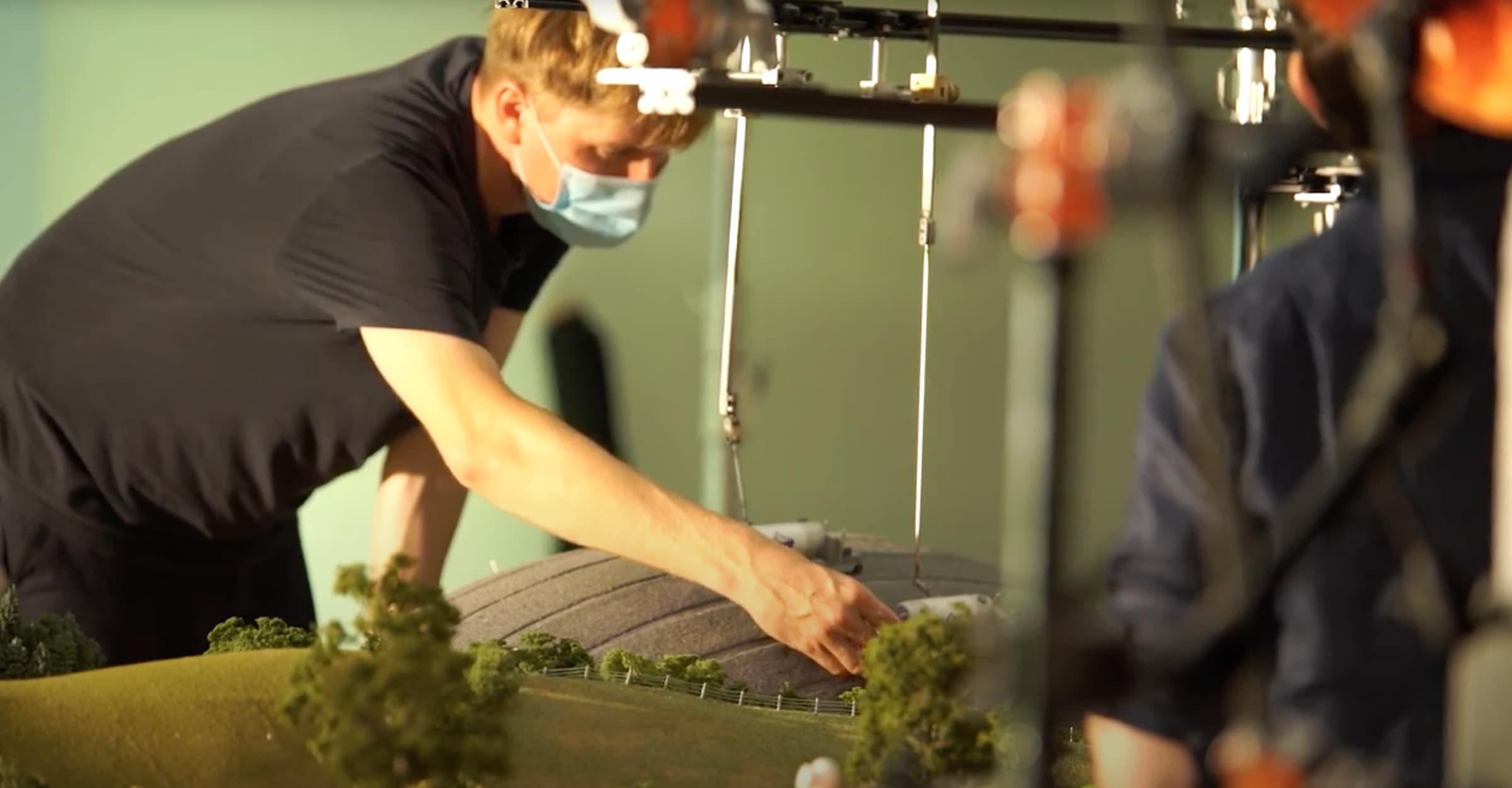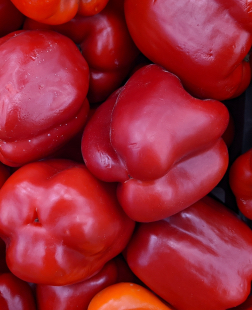
Christina Chan
Choy Division | New York
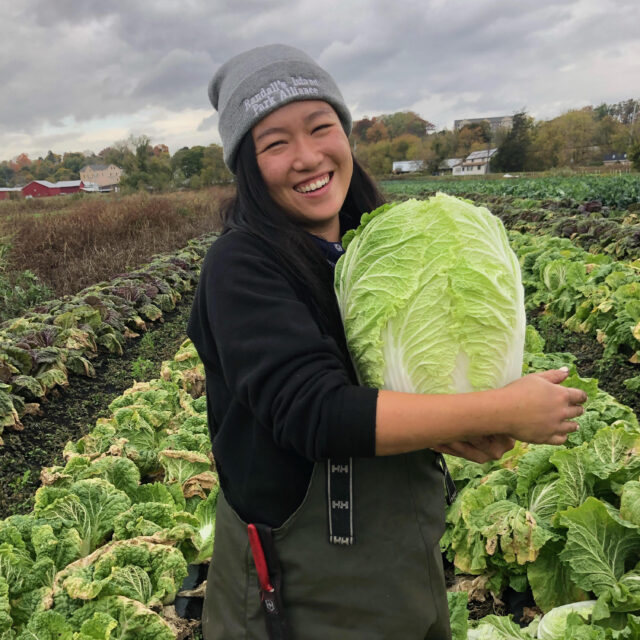
“This funding will go towards the purchase of a new delivery van to help us get more food to more people and to cover the cost of part-time labor.”
Christina Chan is the farmer and owner of Choy Division, an organic, diversified East Asian vegetable farm in the black dirt of Chester, NY. She is a first-generation farmer and second-generation Chinese-American focused on increasing representation in our local food system by bringing culturally relevant and nutrient dense produce to the Asian-American diaspora of NYC.

Ash Abeyta
Ashokra Farm, New Mexico
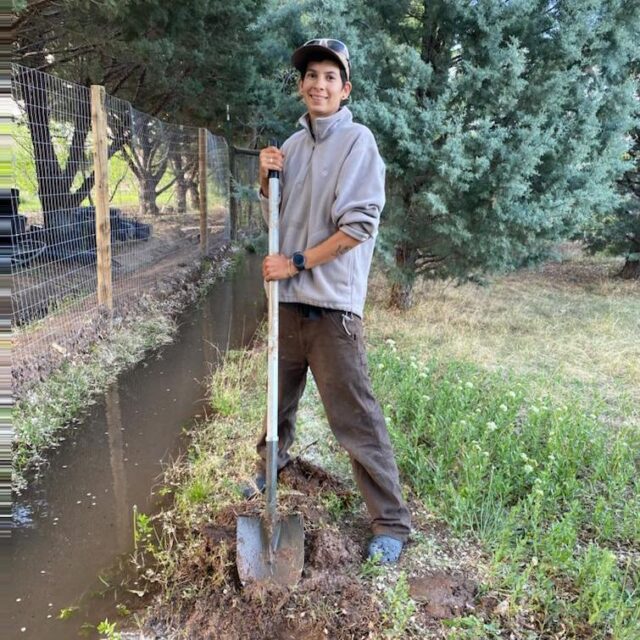
Having our own, with implements, will allow us the flexibility we need and the ability to expand, as well as the opportunity to tool share with our neighboring farmers, too!
Ashokra Farm is a small okra farm in Albuquerque, New Mexico with hopes of expanding. We grow lots of okra sustainably and in harmony with mama nature. This grant will help us buy a BCS walk behind tractor to increase our capacity as farmers. Right now we don’t have any equipment so we borrow a tiller from a community organization; however, it’s often in ill repair and we have to fix it before using.

David Anderson
Cherokee Agriculture Company | North Carolina
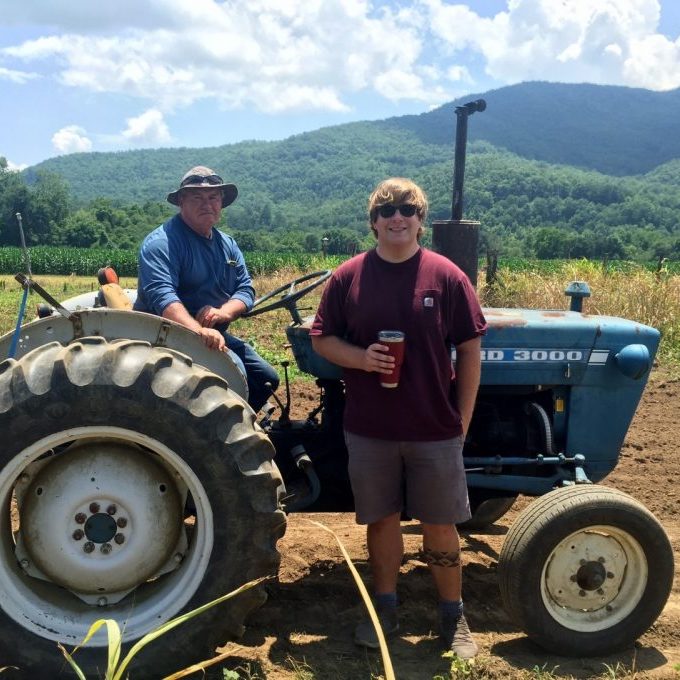
"We will be using the grant to purchase a Tilmor Power Ox- Two-wheel Cultivating Tractor. This will allow us to increase production, crop offerings, create more jobs, efficiency, and provide more produce to the Cherokee community."
Cherokee Agriculture Company is a farm operating on the Qualla Boundary of the Eastern Band of Cherokee Indians and in Cherokee Count, NC. We specialize in fruit and vegetable production and more specifically in Cherokee and Appalachian cultural foods, or as our farm motto states them “Appalachian Delicacies.” The goal for Cherokee Agriculture Company is to provide the Cherokee community and surrounding areas with healthy, fresh, culturally-rich foods that preserve the historic foodway culture of the region

Megan Bantle
Full Well Farm, Massachusetts
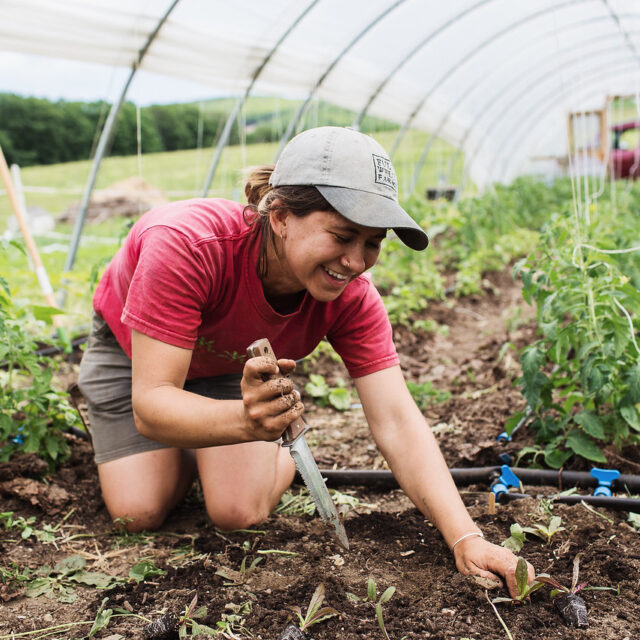
We plan to use the funding from this grant to purchase a caterpillar tunnel that will allow us to extend our growing season, which will provide more produce and flowers to our community year-round and make our farmer wages more sustainable through a longer season.
Full Well Farm is a no till, queer/women-owned vegetable and flower farm in Adams, Massachusetts. Co-owners and operators Laura Tupper-Palches and Meg Bantle have three-quarters of an acre of permanent beds in production in 2021, on the same land where Meg grew up as a sixth generation farmer. Full Well Farm’s mission is to provide the North Berkshire community with fresh, sustainably grown, and accessible vegetables and flowers through CSA shares and farmers markets, and to build an inclusive and equitable community on the unceded Mohican, Wabanaki, and Pocumtuc land that they are currently stewarding. The Covid-19 pandemic has shown us that there is a great need for more local produce in our community.

Patrick Beal
Beal Family Farm, Connecticut
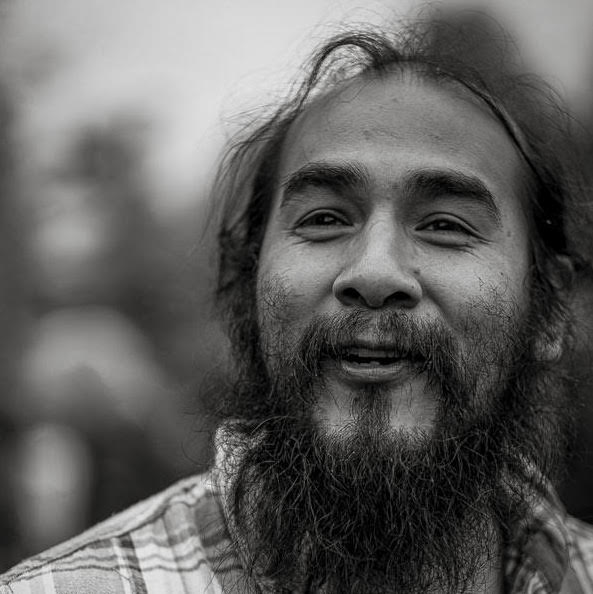
"I will use the grant funding to purchase more farm supplies to grow the fields larger so we can reach more of our community."
I am a farmer interested, trained, training, educating, and experiencing biodynamic, organic, minimal till, no-till, holistic, natural mimicry, and regenerative organic farming techniques. I have a deep connection to and passion for being in the field. I impart some of my soul in the places I reside and work.

Ori Ben-Shir
Sun of Song Apiary, Massachusetts
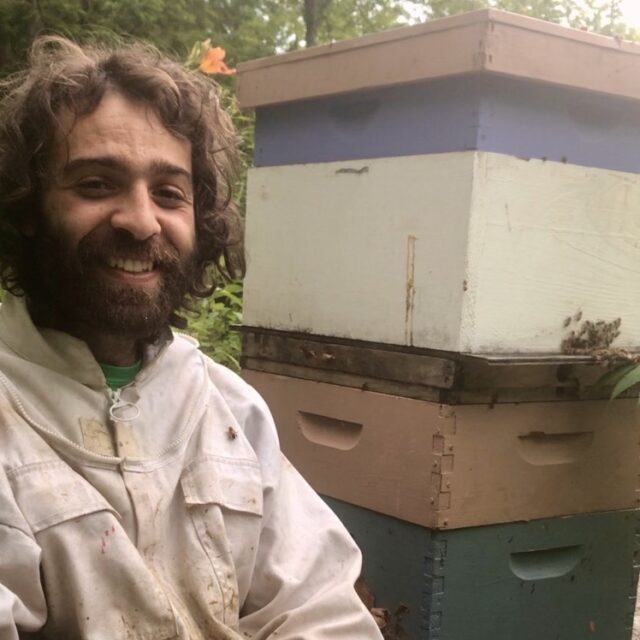
Ori Ben-Shir graduated from UMass Stockbridge with a degree in Sustainable Food and Farming. He has been working with honeybees for six years, including work in commercial apiaries in three countries, and for the Massachusetts Department of Agriculture Resources Apiary Inspection Program. Having started his own operation, Ori plans on investing in the business to increase queen production, pollination services, and colony production.

Moretta Browne
Berkeley Basket CSA, California
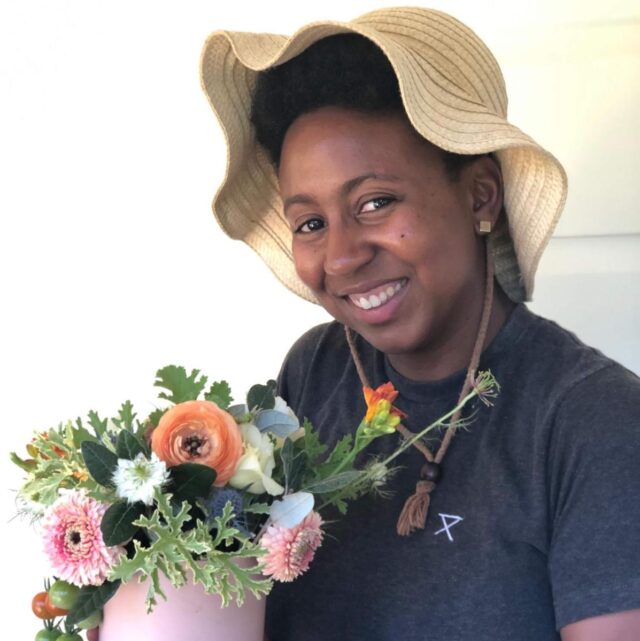
These funds will help support us in bridging the gap between our current income streams and the true cost of sustaining the CSA. We will use these funds to purchase seeds, soil, harvest materials, and cover our labor during the 2021 season!
My name is Moretta ‘Mo’ Browne and I co-manage the Berkeley Basket CSA in California on occupied Huichin-Ohlone land (Bay Area). My co-farmer Marianne and I grow/forage over 40 food crops in three backyards (around 1/2 acre) across the city to feed 21 households. Our mission is to provide hyper local, organically grown produce in the city, while nurturing relationships in our community and honoring our responsibility to the earth.

Casey Byrd
Treehouse Compost LLC, Kentucky
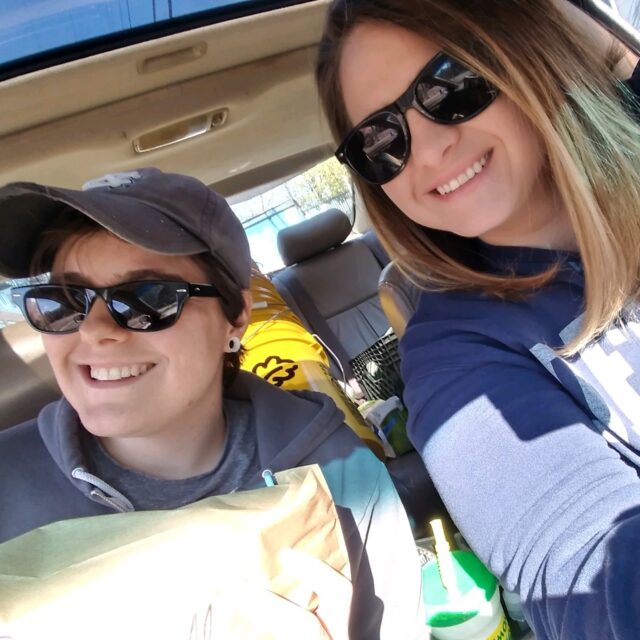
Casey (they/them) is a 7th generation Appalachian farmer and co-owner of Treehouse Compost. Operating on a retired WPA rock quarry, Casey is passionate about regenerative farming and biodynamic agriculture, and loves making artistic hügelkultur structures. Their farm is centered around turning food waste into a useable soil amendment and growing foods for market and donation.

Alison Espinosa
Rootworker's Croft, New York
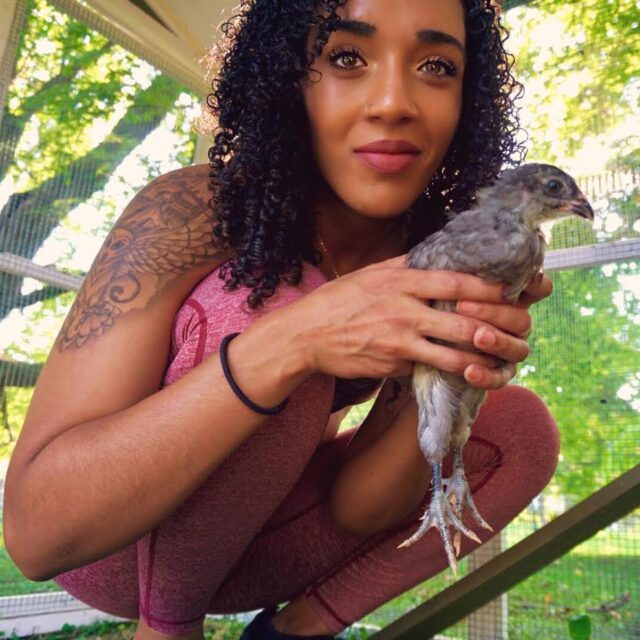
Alison Espinosa is a Livestock Herbalist Farmer of Afro-Caribbean descent stewarding land and animals in New York’s Finger Lake region. As a certified veterinary technician of 10 years, Alison’s specialities range from Animal Husbandry, Holistic Livestock remedies, Veterinary Herbalism and Poultry Breeding. The grant funding will be used to expand building infrastructure including an additional greenhouse for expansion of herb starts/seedlings, poultry coops, incoming chicks/ducklings, as well as assisting with the launch of a community Laying Hen/Duck Breeding Program that will allow for the reservation of a hen’s production/ chicks or procurement of a laying pullet (for farmers/backyard farmers) without the responsibilities of the baby chick raising period!

Siobhan Dubose
Kind Harvest Farm, Alabama
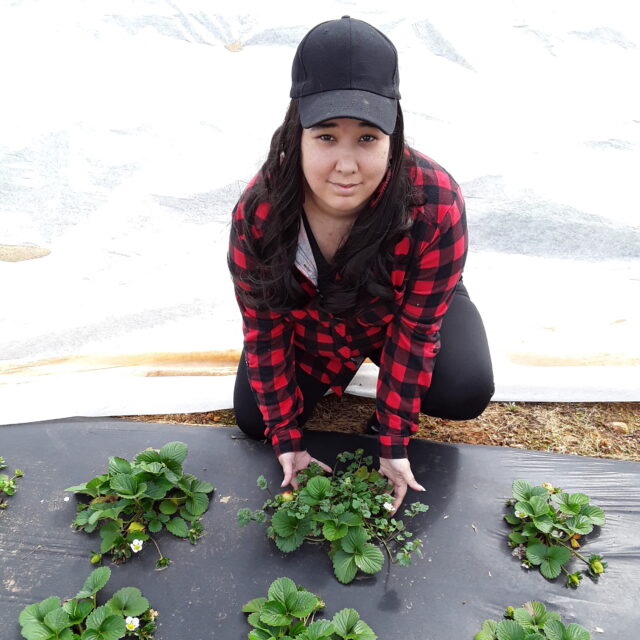

Pantaleon Florez III
Maseualkaulli Farms, Kansas
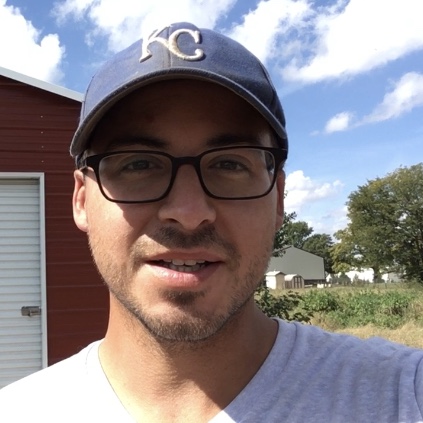
Pantaleon is a farmer, chef, and sole operator of Maseualkualli Farms, a no-till, no fossil fuel cultivation farm in Lawrence, Kansas. He grows seasonal produce for restaurants, farmers markets, and hopefully soon for culturally specific grocery stores, as well. Specialty crops include traditional Mexica ingredients such as papalotl, pipiche, Mexican tarragon, nopales, jicama, and a strain of maize from his great-grandfathers’ ancestral homelands in Guanajuato, Mexico. Grant funding will be used to help pay down student loans which currently amount to about 66% of produce sales. Funding will also be used to purchase a new computer for sales, tracking farm inputs/outputs, multimedia storytelling, and food and farm policy and advocacy work.

Adriana Giacalone
Thousand Leaves Farm, Massachusetts
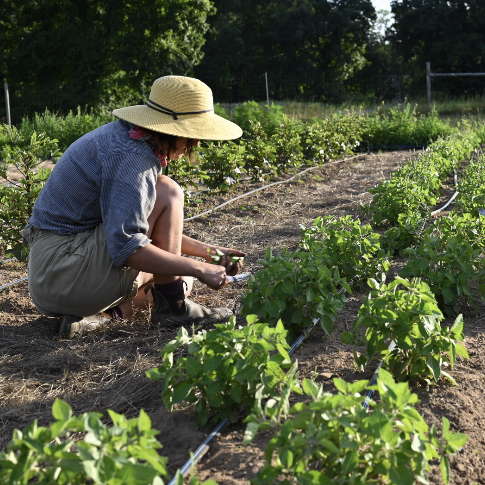
By growing a wide range of resilient herbs and plants for use in the kitchen, we hope to encourage food diversity, experimentation, and a more nourishing and equitable agricultural system within our local community.
Formed in 2020 by partners Adriana and Kate, Thousand Leaves Farm is a queer run, low till, 1/4 acre herb farm located on the North Shore of Massachusetts. For the last year we have been working to provide vegetables and herbs to a local food hub. In 2021, we will be expanding our production to 1/2 acre. This funding will help us with infrastructure cost and the supplies needed to distribute more food to more people.

Avé-Ameenah Gillum-Longh
Oakland SOL (Sustaining Ourselves Locally) Revival, California
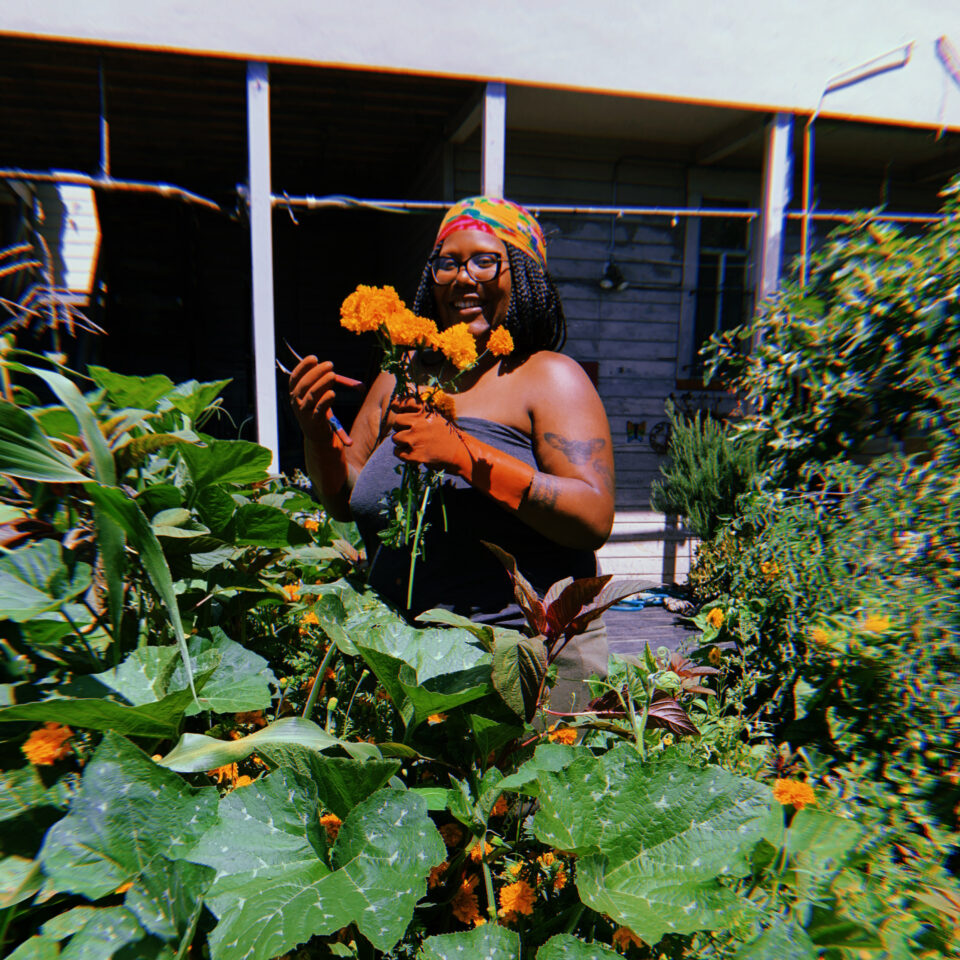
This grant will help us with much needed infrastructure installments, including rain/grey water systems, new irrigation system and support with food distribution of our summer and winter crops.
I’m Avé-Ameenah, executive director and lead farmer at Oakland SOL (sustaining ourselves locally) Revival. SOL was established in 2003 as a community garden located in the San Antonio district of East Oakland, CA, and recently achieved 501(c)3 non-profit status. In 2020, we became Black-owned and is in the process of reopening the urban garden for our community garden days, youth internship and our annual plant sale. We are excited to have received the National Young Farmer Grant.

Nelson Hawkins
We Grow Urban Farm, California
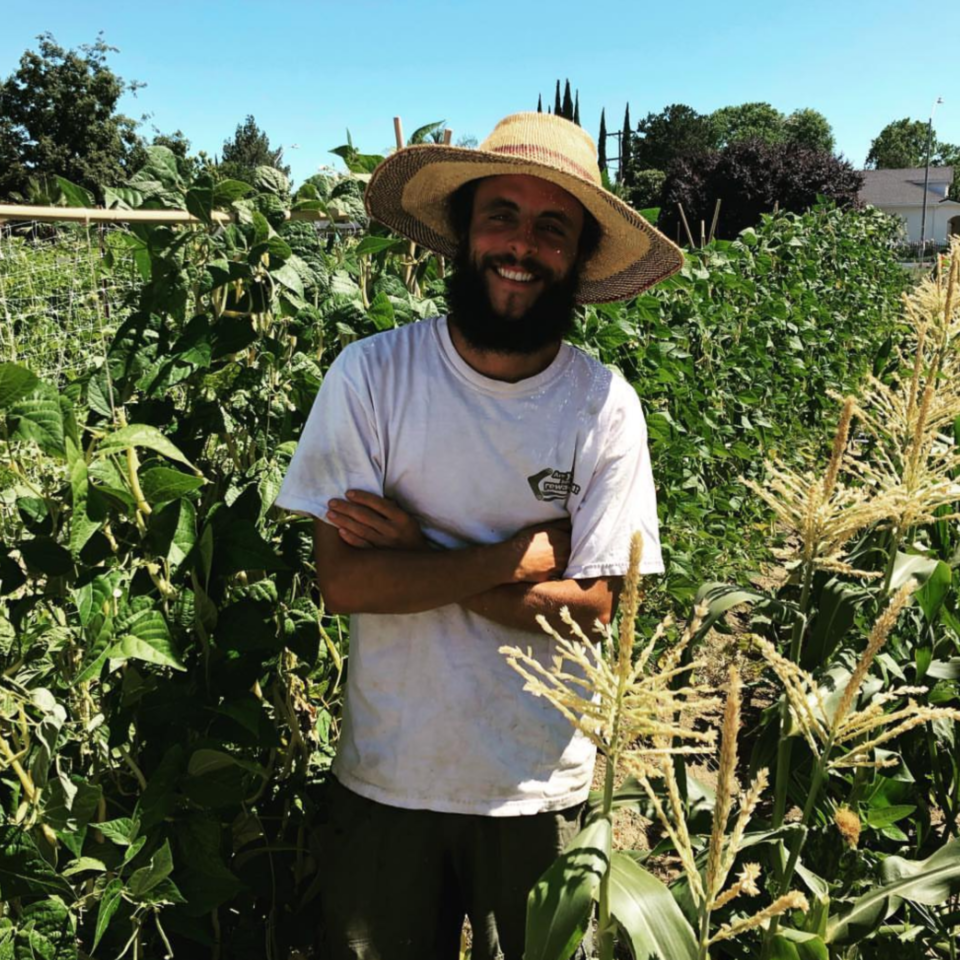
We plan to use these funds to provide work opportunities for local youth and to purchase equipment to reduce our labor time.
I am a husband, new father, and co-owner/operator of We Grow Urban Farm in West Sacramento, CA (stolen land of the Nisenan/Miwok tribes), holding over 12 years of farming experience. I envisioned building a local regenerative food system that heals the land as we heal ourselves and relationship with the land. In 2018, this vision seed was planted and has grown to 1 acre (half at our original urban site, and half in a nearby town). We produce a large variety of seasonal fruits/vegetables and make them accessible to low-resourced communities directly, at our farm stand, and CSA program. We also supply to some local restaurants and food distribution programs.

Jayne Henson
TransGenerational Farm, New York
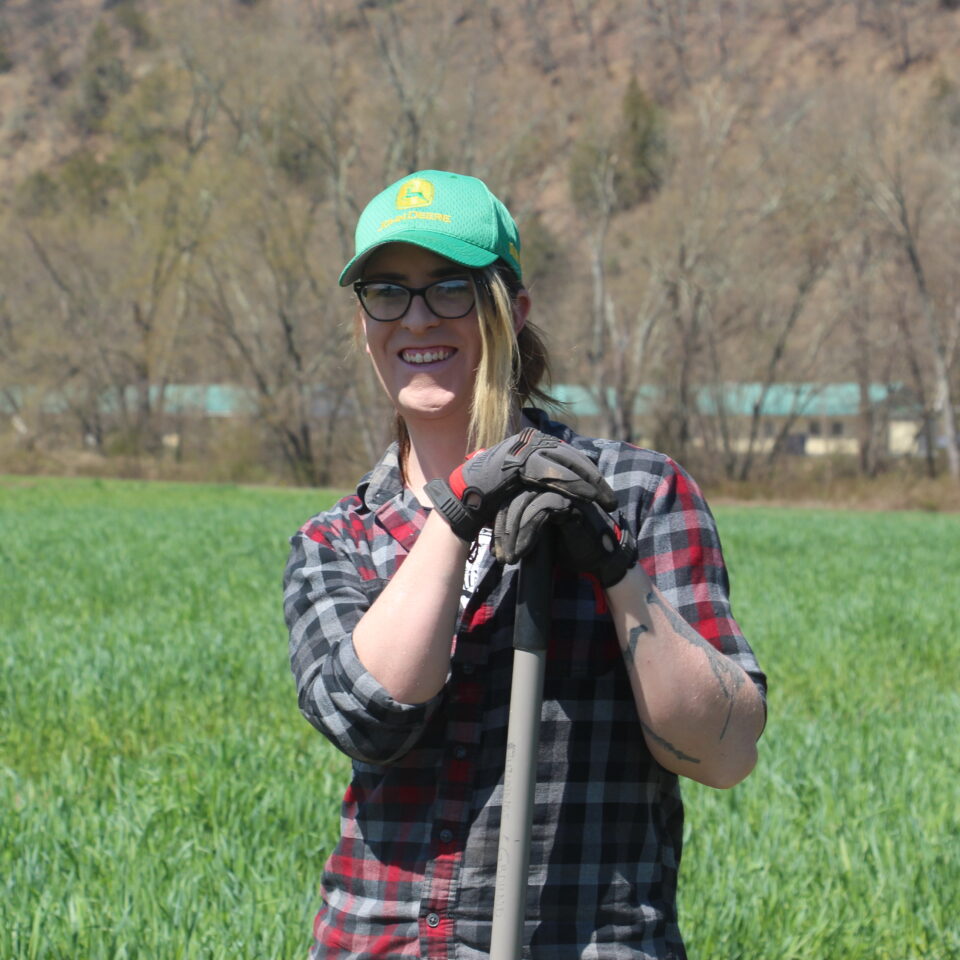
This grant will be used to fund the construction of a new wash and pack facility, to help us ensure that our customers and community members receive the freshest and healthiest produce we can offer.
Here at TransGenerational Farm our goal is to connect LGBTQ folks, and others who are traditionally excluded from farming, to agriculture. We dedicate ourselves to providing access to healthy produce, grown through responsible regenerative practices. We seek to do what we can to shake the yoke of capitalism that tethers us to our limitations, so that our roots can grow deep and uphold one another. The farm provides fresh produce to a local 80-person CSA, works closely with local restaurants and chefs, and has a stand at our local farmers market in New Paltz, NY. We also hold events aimed at community engagement and education as we seek to connect LGBTQ folks to the land, food, and one another.

Ara Holmes
Texas Eco Farms, Texas
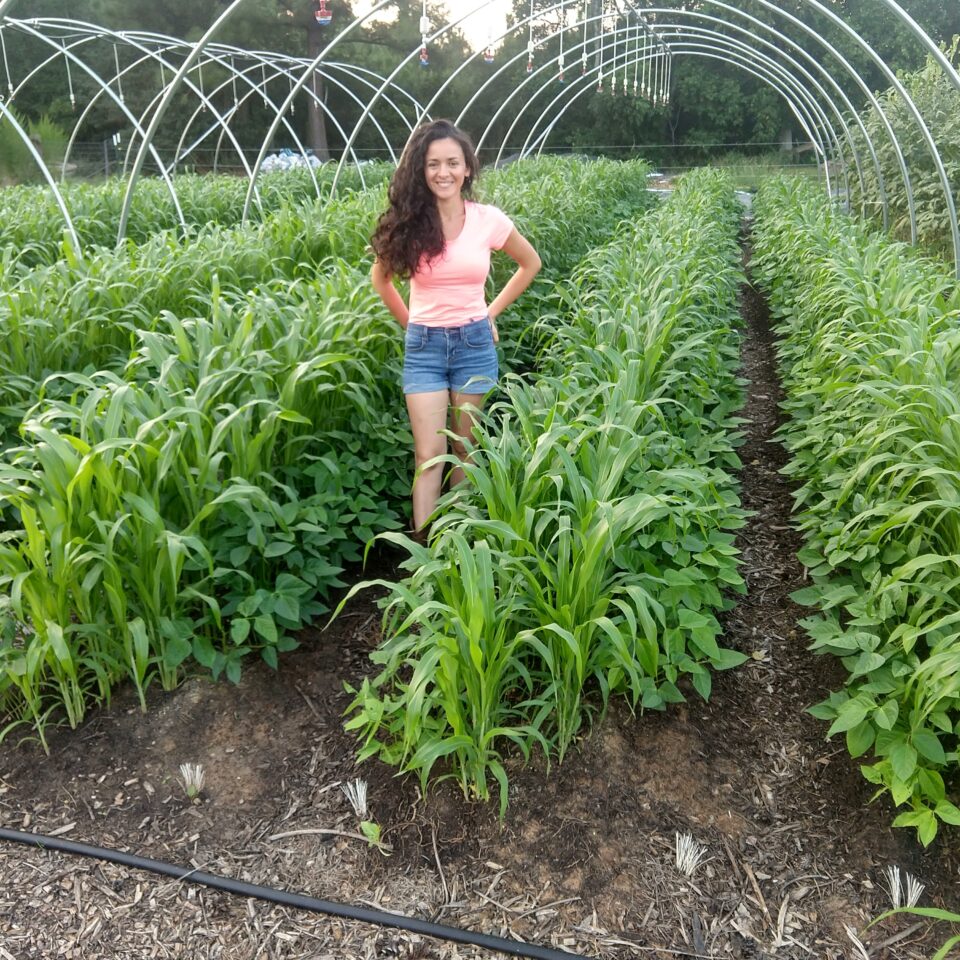
This will bring us closer to our vision of creating agriculturally productive ecosystems which have the diversity, stability, and resilience of natural ecosystems.
We grow fresh, clean, and poison free foods in organically managed, remineralized soil for our community. Our mission is to grow organic, nutrient dense foods that enhance our community’s health while building a biodiverse farm that enhances local ecology and food resilience. We plan to use the grant funds to establish a diverse range of perennial plants in productive multi-species hedgerows around our vegetable fields.

Shaun Houghton
Our Perfect Farm, Washington
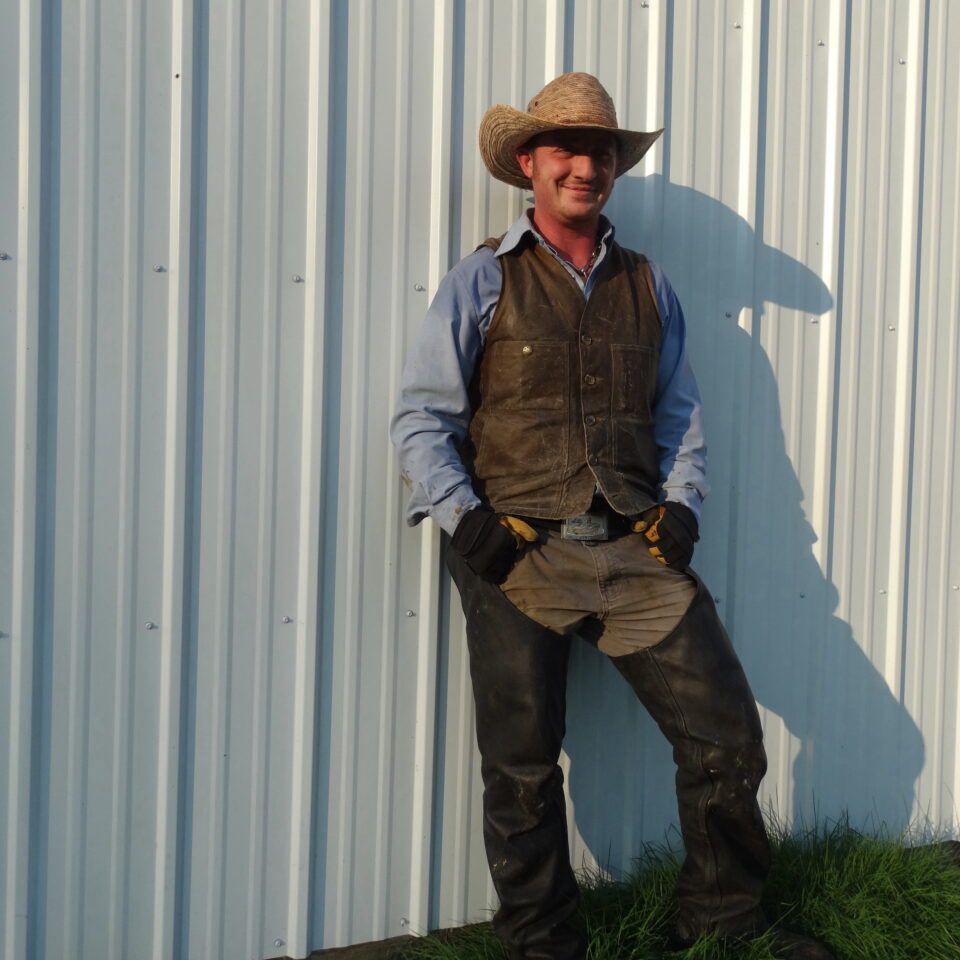
With the National Young Farmers Grant, Our Perfect Farm is installing a fence around their vegetable field so the wild elk and deer will forage on the farm’s native plantings and the farmers can provide the vegetables to more people to eat.
Our Perfect Farm is a queer family farm in the Puget Sound region, committed to cultivating generosity alongside unique and rare breeds of plants and animals for food. Our human-scale farm is situated on Nisqually land and is a celebration of the region’s bounty. Shaun and his husband, Brett, are first generation farmers using regenerative, organic, and permaculture principles to produce pastured pork, pastured poultry, hand collected eggs, and fresh local ingredients for special occasion meal baskets.

Zainab (Zee) Husain
Cultural Roots Nursery, California
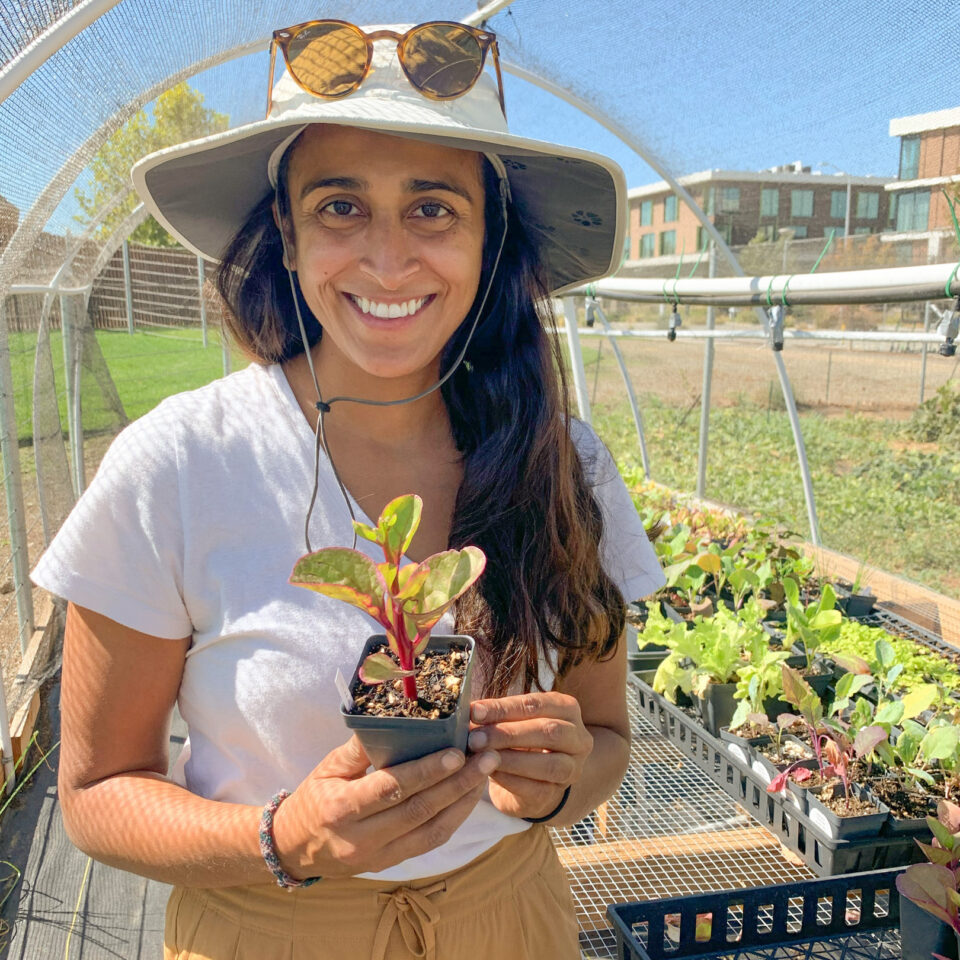
Funds from the 2021 Young Farmer Grant Program will be used to invest in a larger greenhouse to scale up our production and purchase lasting growing supplies. We will also use part of the funding towards growing, donating, and saving seed for a selection of South and East Asian crops.
Cultural Roots Nursery was started by partners Zee Husain and Li Schmidt, with a mission to increase the availability of culturally relevant plant starts and empower communities to reconnect and reclaim their ancestral foods. We grow vegetable, herb, and tree starts that are medicinally, spiritually, and culinarily significant to our heritages — Pakistani and Taiwanese. By making cultural plants more accessible we aim to increase food security in our communities and inspire the next generation of AAPI to connect with heritage foods and land while building a more equitable food system.

Detra Iverson
Love N Labor Botanicals, Michigan
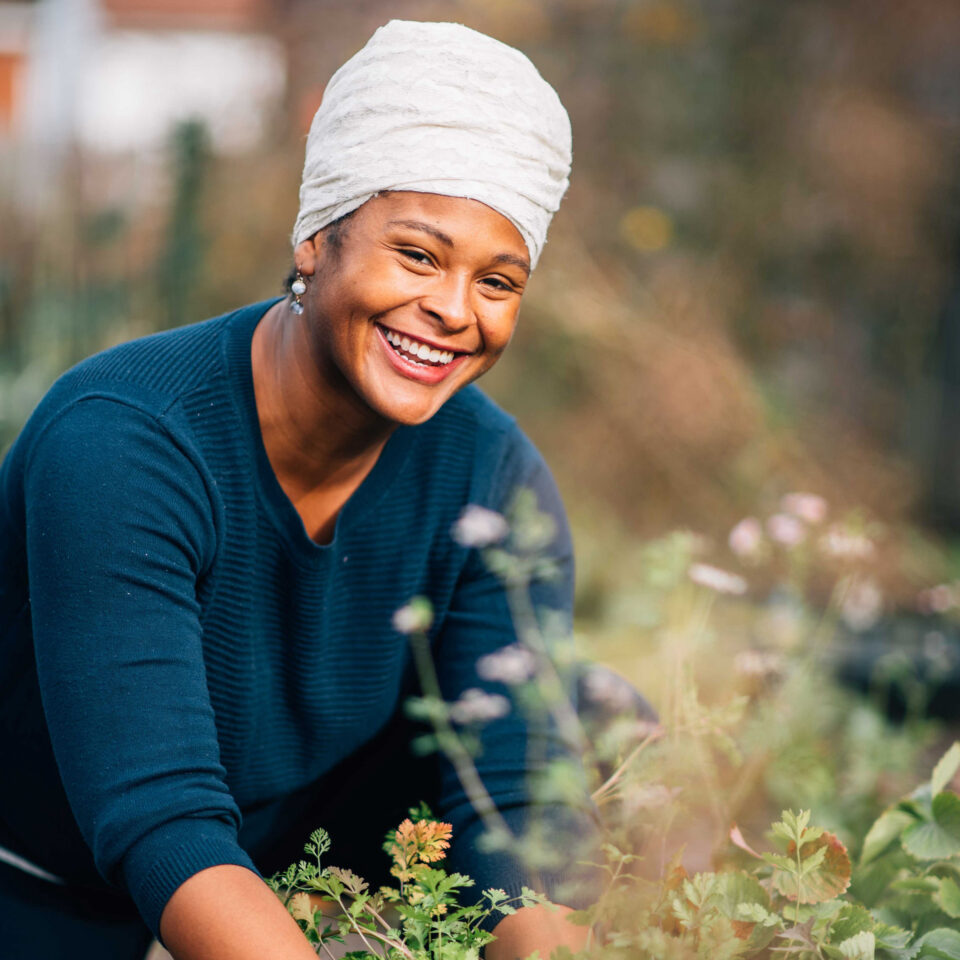
The funds from this grant will be used toward the purchase of land and the construction of a hoop house with a rainwater catchment system. This expansion of her farm will aid in the education of people with a common goal of creating a more equitable food system, and for that she is grateful.
Detra Iverson is a wife, mother, and the lead farmer and owner of Love N Labor Botanicals Farm, located on the cusp of Hamtramck and Detroit in Michigan. Living in a community deemed a food desert makes having access to fresh food to nourish her family not only imperative, but challenging. This is why she is committed to serving others through the cultivation and sales of locally-grown produce and value-added products.

Fatima Jackson
Action Jackson Farm, Kentucky
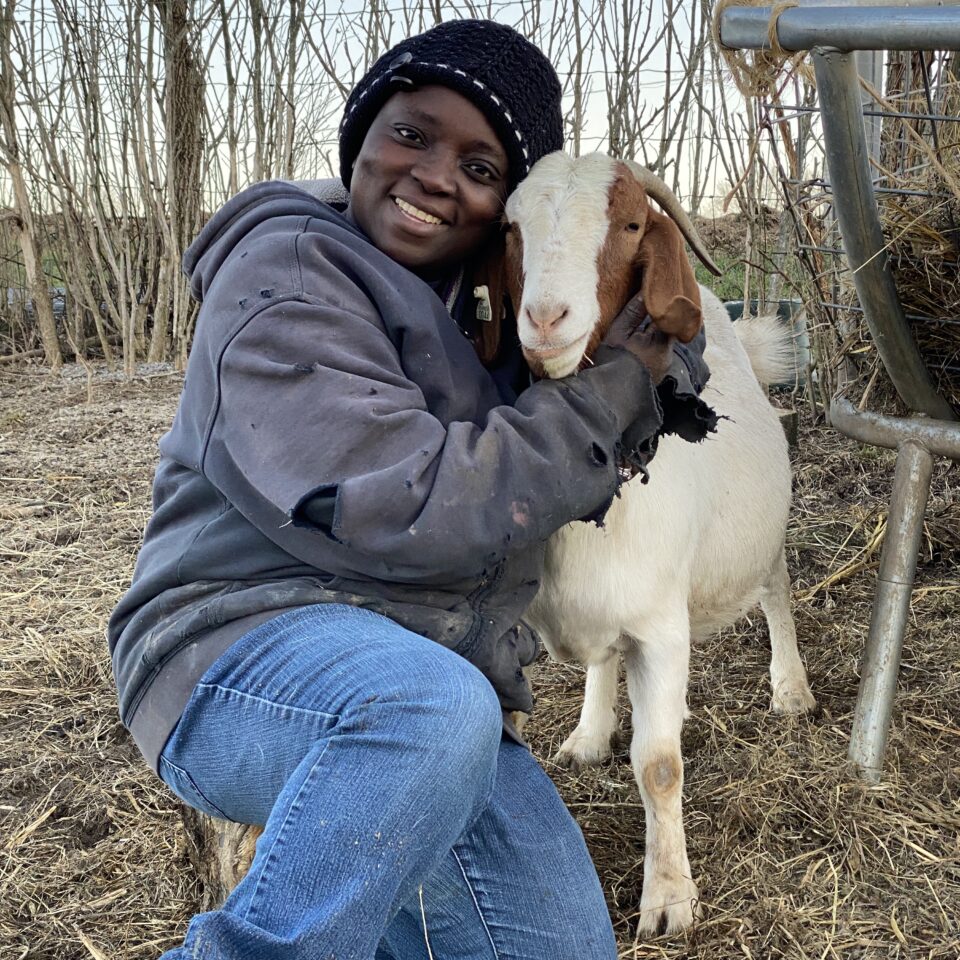
We plan to use this grant to continue to scale our meat goat operation and make changes that will help preserve the health of our animals and land for future generations.
Action Jackson Farm is located in the Kentucky bluegrass region. We are passionate about livestock production, specifically raising high quality meat goats. Our goal is to mentor other farmers in sustainable livestock production.

Makayla Jarvis
Jireh Family Farm, LLC, North Carolina
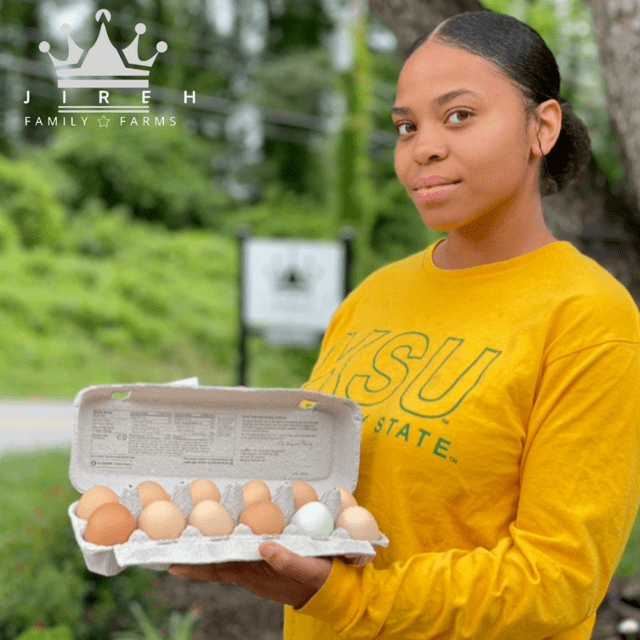
Jireh Family Farm aims to offer education and inspiration to young people about the legacy of agriculture, removing the stain of generational slavery and uplifting people of color about the benefits and legacy of land ownership and self-sustainability.

Ashlee Johnson-Geisse
Brown Girl Farms, California
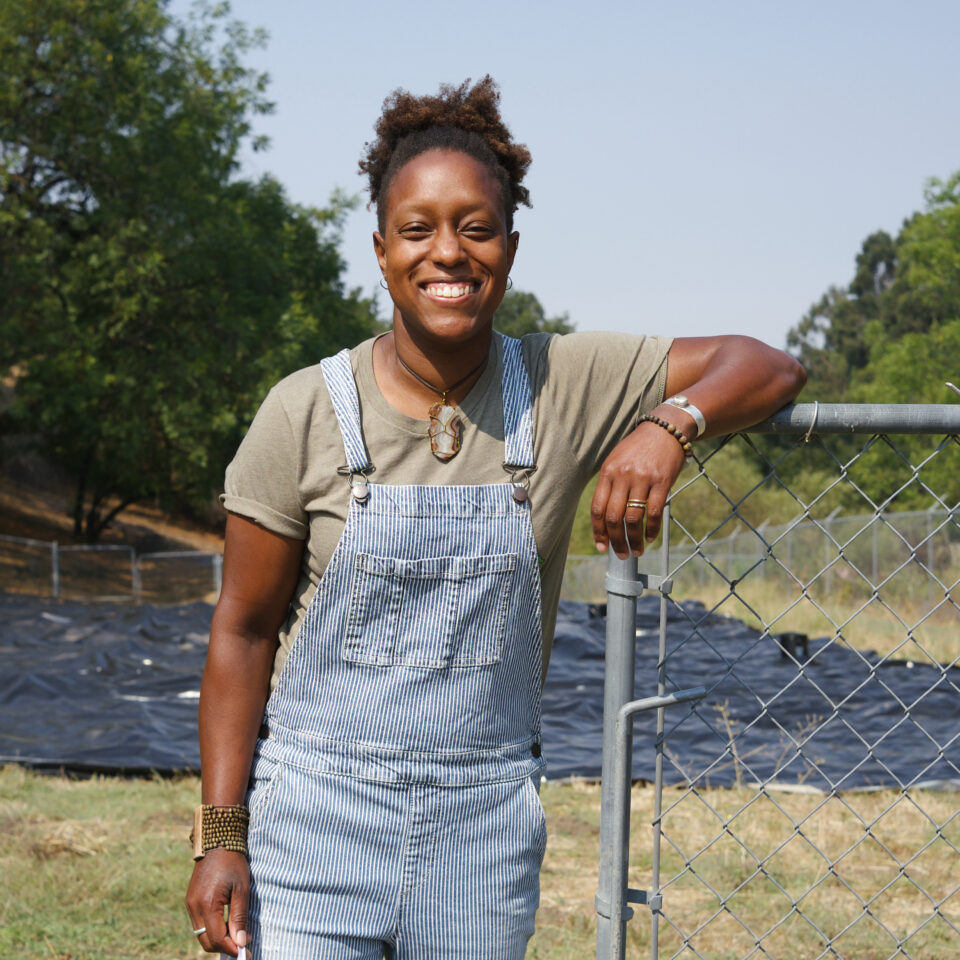
With this grant we will be able to purchase a walk-in-cooler, which will allows us to refrigerate produce harvested from our farm. We are so excited and grateful for this grant and to be able to purchase a walk-in-cooler!
Hello! My name is Ashlee Johnson-Geisse and I am a Black queer woman farmer and the founder of Brown Girl Farms. Located in Hayward, California, our farm was birthed from my belief that black queer women farmers need more representation and celebration in the growing world. Brown Girl Farms serves to “spread loving intention through food and flowers” and centers on Black and Brown communities. Our farm runs a small CSA program where we provide market vegetables, African American heritage crops, and unique seasonal flower bouquets to community.

Katherine Juhan-Arnold
Baby Katie's Pharm & Kitchen, Georgia

Baby Katie’s will use the grant funds awarded to cover the cost of rezoning and transitioning the Pharm from Residential Use to Agricultural Use.
Baby Katie’s Pharm & Kitchen is a five-acre nonprofit farm located in Snellville, GA. Baby Katie’s is dedicated to creating healthy communities by producing vibrant, soon-to-be certified organic, worry-free products. Well-known for bringing low-income neighborhoods together through gardening, their main purpose is to provide fresh fruits and vegetables to people who are not typically able to afford them. Baby Katie’s Pharm & Kitchen was founded by Katherine E. Juhan-Arnold. Katherine has experience small-scale row and specialty crop farming. She started Baby Katie’s with the desire to feed the community.

Nancy Kost
The Buffalo Seed Company, Kansas
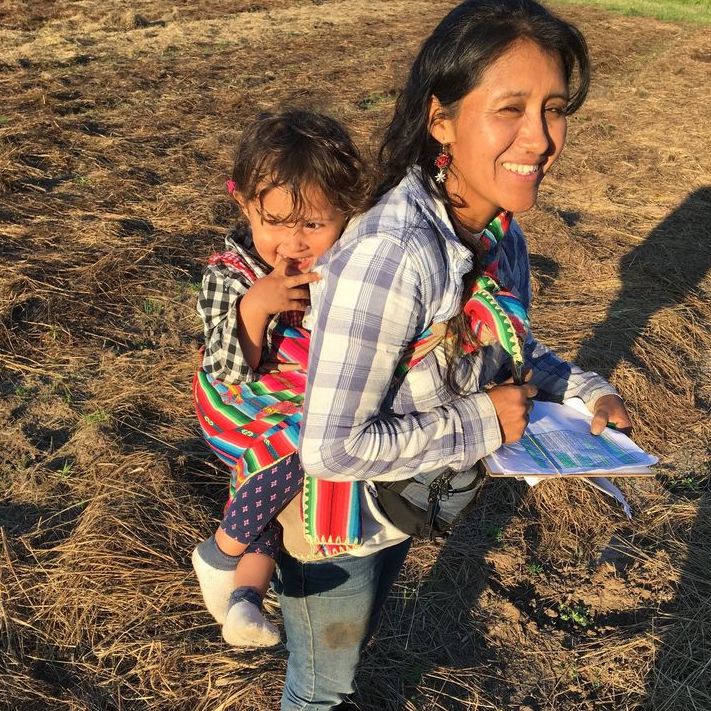
The National Young Farmers Grant will help us obtain clay seed vases to store our collection, as well as cleaning and packing equipment that will increase our efficiency so that we can offer more diverse and locally adapting seeds to our community.
Hola desde Kansas! We are the Kost Family and owners of the The Buffalo Seed Company. We supply growers in the Midwest with diverse, locally adapting horticulture and crop seeds to increase the resiliency/sustainability of our local food systems. We grew all the seeds we offer in the greater Kansas City area for at least one season in soil tilled once, using organic inputs, no chemicals, and no irrigation. This is important as the seeds are adapting to the greater Kansas City area, which is ultimately better for the environment. This year we are offering over 119 varieties of seeds and our plans for next year is to at least double that number.

Jibril Kyser
Mocambo Center for Agroecology and Refuge, California

The grant funds will be used to bring on another farmer to support with crop cultivation and food distribution operations.
Jibril is a Black peasant, producer, and promoter of agroecology, and the lead farmer at Mocambo Farm and Refuge in Cotati, California. The farm specializes in growing certified organic Afrikan heritage crops for CSA, farmers markets, restaurants, and grocery stores in the Yay Area. The farm also raises poultry for eggs. In addition to being a farm, the land is a space for people to come hang out, heal, do art, hold ceremony, and make music.

James Leavell-Greene
GreeneLanding KY, Kentucky
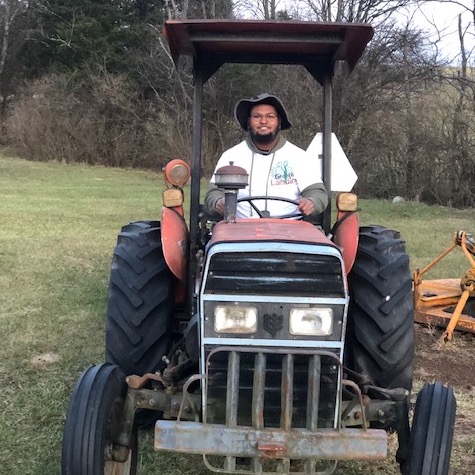
This grant will catalyze “Nanny’s Land” in Anderson County to reaching its small farm potential more quickly, and allowing us to experiment with more things in Lexington, e.g. cut flowers, growing grapes (arbor vs fence trellis), etc.
Hi, I’m James Leavell-Greene and I am a 2nd-generation farmer. My family owns land in Lexington, Fayette County, KY and Lawrenceburg, Anderson County, KY. In Fayette County we have a large garden site, in the African-American hamlet of Cadentown, Lexington, KY where we host a summer youth program for Fayette County middle school and high school students, teaching them about and allowing them to practice gardening/horticulture. We have expanded to growing crops on my grandmother’s land in Anderson County and with the help of this grant we will be able to produce enough for a limited share CSA.

Brittany Lee
La Botanica, Virginia
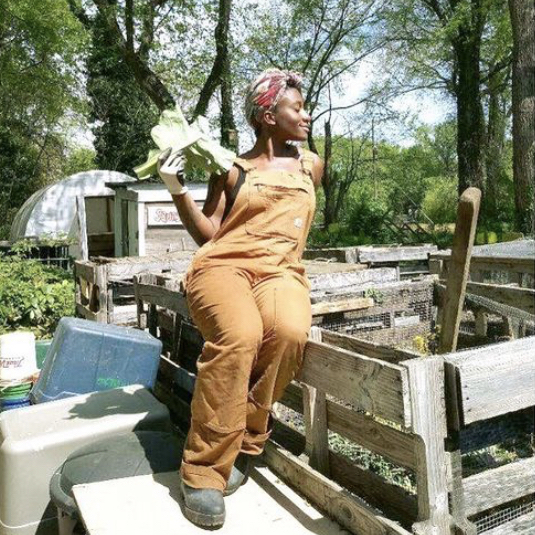
This funding will help operate a family business in its first year and present our creative endeavors in the cultivations of Indigo, natural dyes and cut flowers.
Being raised with an emphasis on self-sufficiency and family, farming has existed for myself and my family as a way to reward the body and the spirit.

Ryan Lenzy
Lenzy Cattle Co, Texas
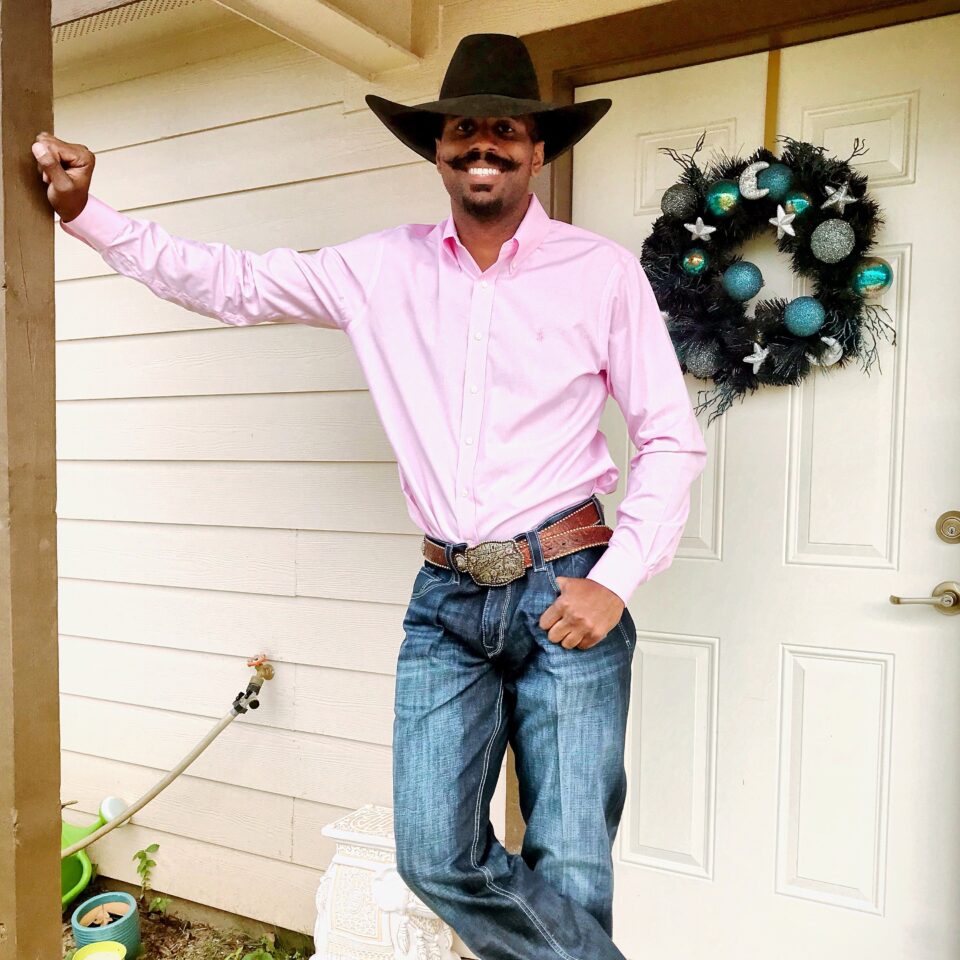
I’m planning on using the grant money towards obtaining more lease land, doing more cross-fencing, applying weed killer/ fertilizer to improve my grass, purchasing a bull, and adding more round bales in case of a drought in the coming year.
I am a proud recipient of the Young Farmers Chipotle grant, for which I am immensely appreciative. My name is Ryan and I am from a small town in Texas. I am a recent graduate of West Texas A&M with a bachelor’s degree in Animal Science. I run a small cow/calf operation in Central Texas. Recently I have put together a herd of Commercial Bradford and Registered Brahmas. The cattle are grazed on pasture land and also are supplemented with hay mineral tubs, and feed as needed.
My operation is just starting out and is a small one. I’m focusing on quality rather than quantity. In doing so, this will allow me to have a strong foundation to build upon. In the future, my plans are to raise quality replacement heifers for young ranchers to buy for stock shows or to add to their herd. I feel that whatever contribution we can make to encourage our youth to become more interested in agriculture will help ensure a more stable existence for the future of farmers and ranchers.

Cachae Lopez
Sonoran Stems, Arizona
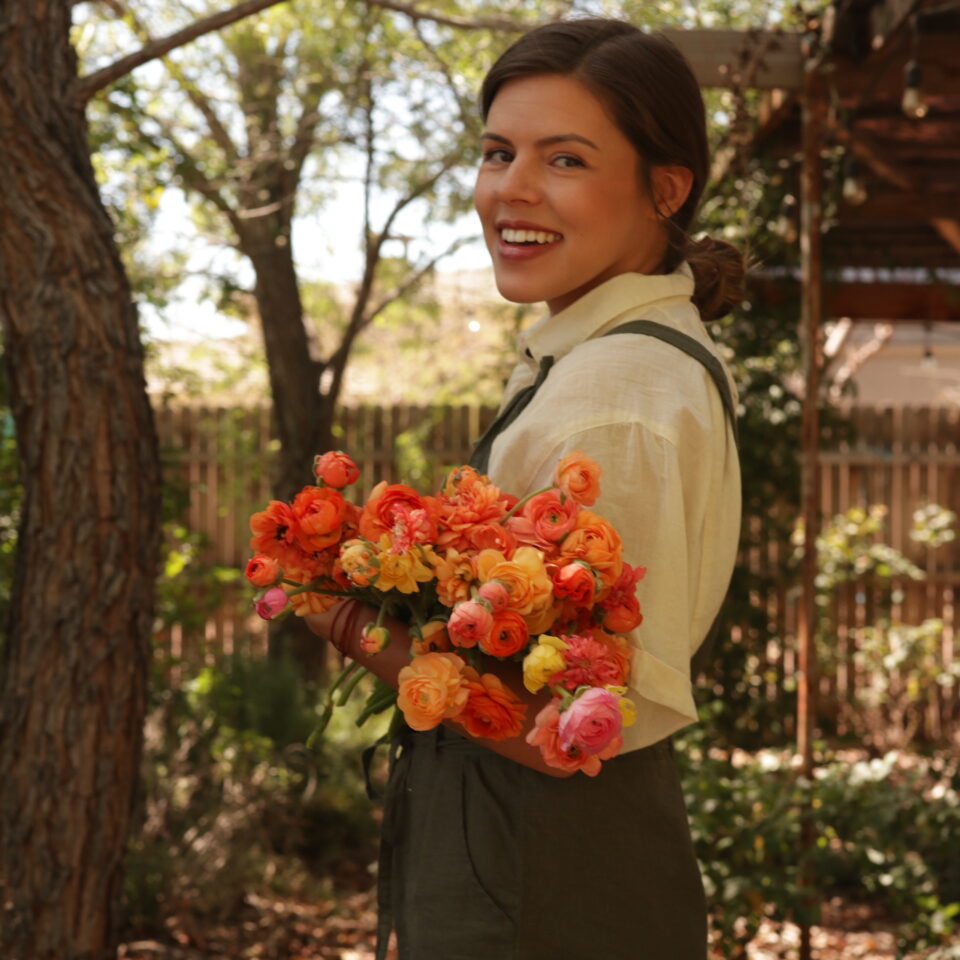
Cachaé plans to use her grant for scaling up her current growing operation, and building the necessary infrastructure for season extension. In part, her farm efforts serve as a reminder that as much as our livelihoods rely on borrowing from the Earth, it is our responsibility to ensure that how we live reciprocates this balance
Transplanted from the Southside of Chicago, Cachaé has sought to sustainably grow speciality cut-flowers in an environment as unexpected as it is breathtaking – the Arizona Sonoran Desert. She has incrementally forged a path, self-taught and self-funded through hard work, research, and resilience. Overcoming industry and regional challenges to nurture these otherwise economically and environmentally impairing varieties, she looks to support her community and florists with access to these locally grown flowers.

Ali Macharemo
Mnyati Village, New York
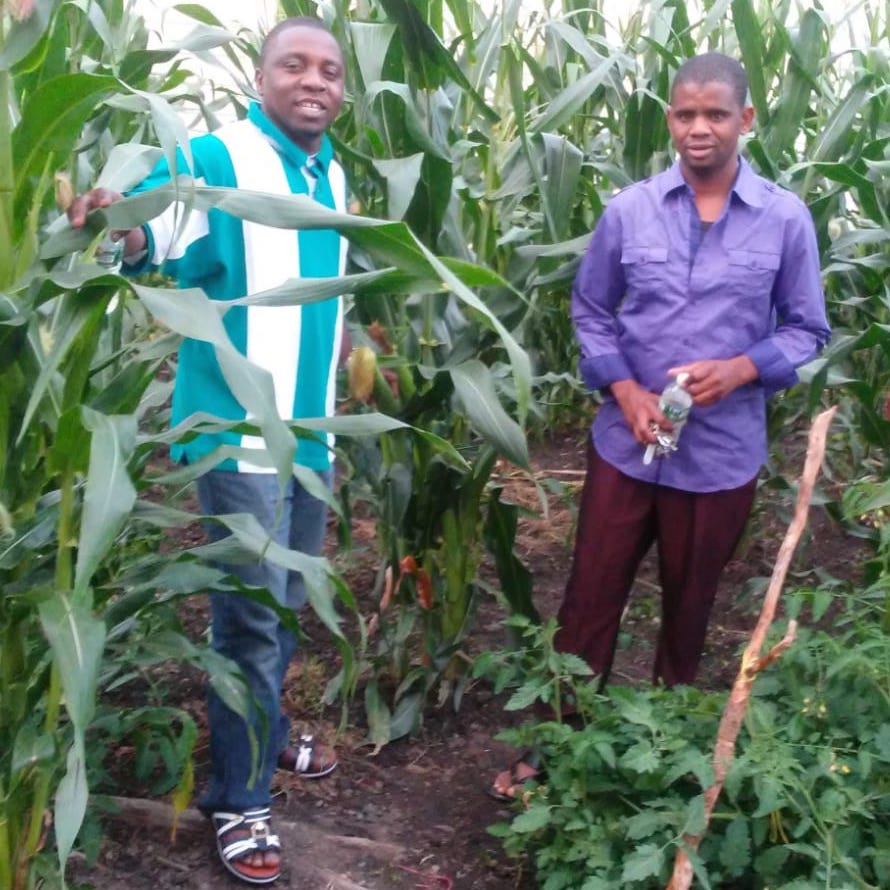
Mnyati Village, New York

Emmanuel Marte
Micro2life LLC, Connecticut
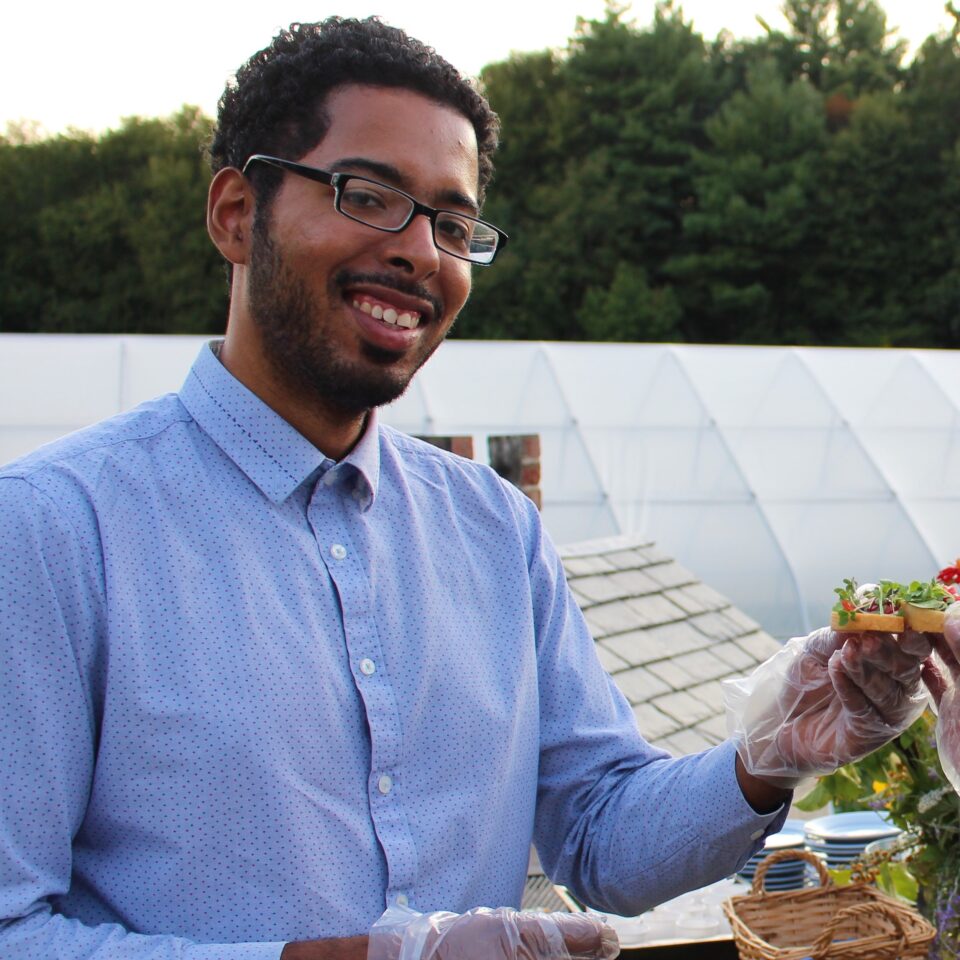
As a recipient of the Young Farmer Grant, I plan to use the funds to expand our production of growing vegetables and to provide more educational resources to the community. In addition, this grant will help us to eliminate our business debt and expand our marketing opportunities.
My name is Emmanuel Marte and I am the co-founder of Micro2life LLC. Established in 2018, Micro2life LLC is an agricultural business with a mission to educate and supply organic microgreens and vegetables to the local community. We believe in regenerative agricultural practices, such as no-till farming with the use of local organic soil amendments. The community I serve is considered a food desert with limited access to locally grown produce. I believe nutrition education can be part of the solution to bring attention to the community on the importance of knowing where their food comes from.

Jordan Martinez
Finca Agroecologica Bohiti, Puerto Rico
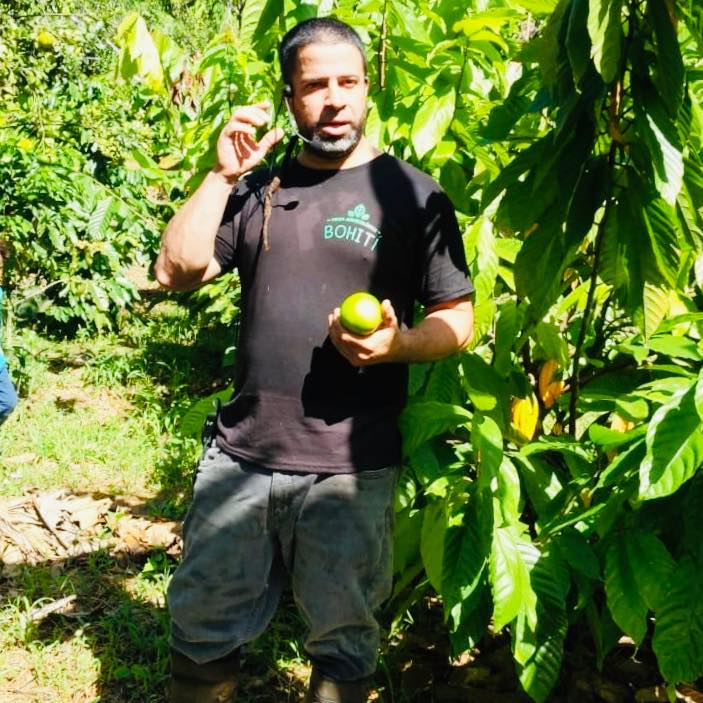
We will use the grant money to pay employees and buy seeds and compost for the land; we are working towards our goal of developing a food forest.
Hi! My name is Jordan Martinez and with my wife, Sofia, and three kids we started a small family farm. Some of the activities on our farm include food processing, planting, selling products, guided tours, raising animals, practical workshops with the community, work exchanges with other farmers, and farm-to-table culinary experiences.

Eliza Mason
Lilliputopia, Oregon
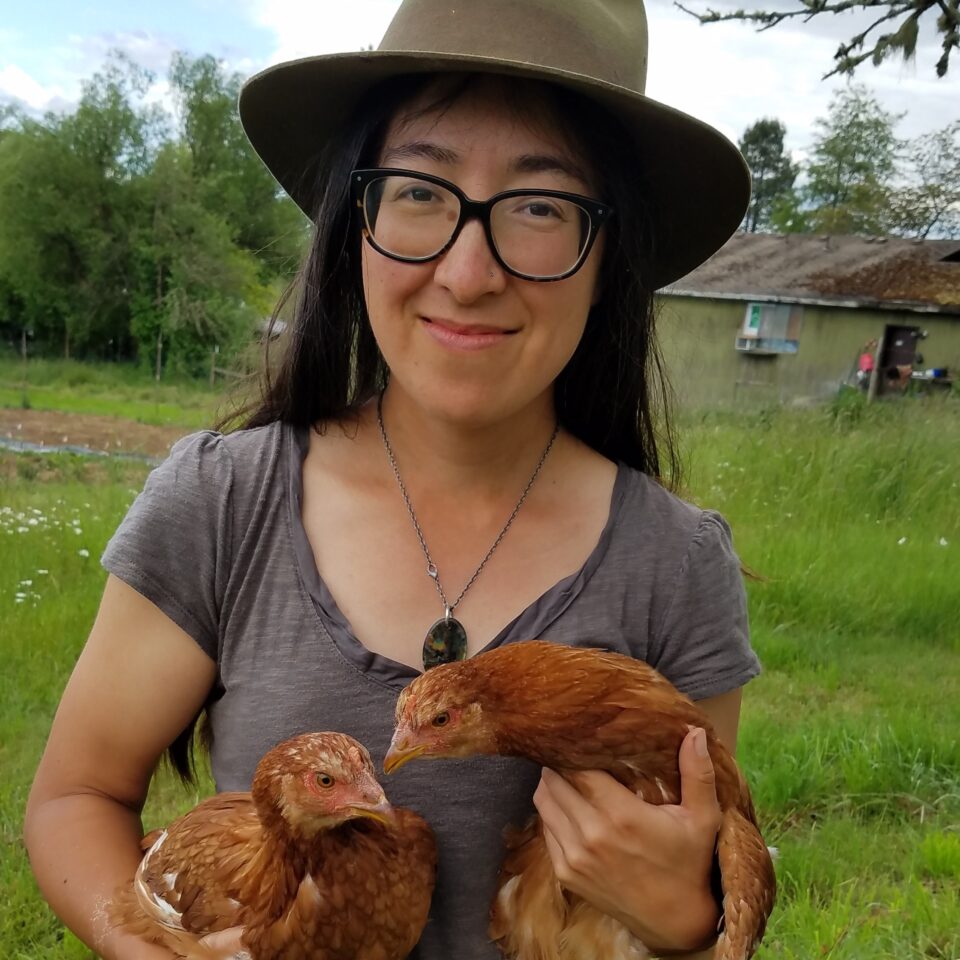
This grant will help fund a multifunctional rainwater catchment project, which will collect rainwater and help establish a new fruit tree orchard on our terraced hillside.
I founded Lilliputopia in 2017 with a background in microbiology and the desire to employ regenerative agriculture at small scales. Our goals include producing fresh healthy food, contributing to sustainable agricultural research, and supporting the local community through our tiny farm store. We experiment with dry farming, which entails growing our vegetables without any irrigation, and we collaborate with organizations such as Oregon State University and the Dry Farming Institute.

Kaneisha Miller
EM Farms LLC, Georgia
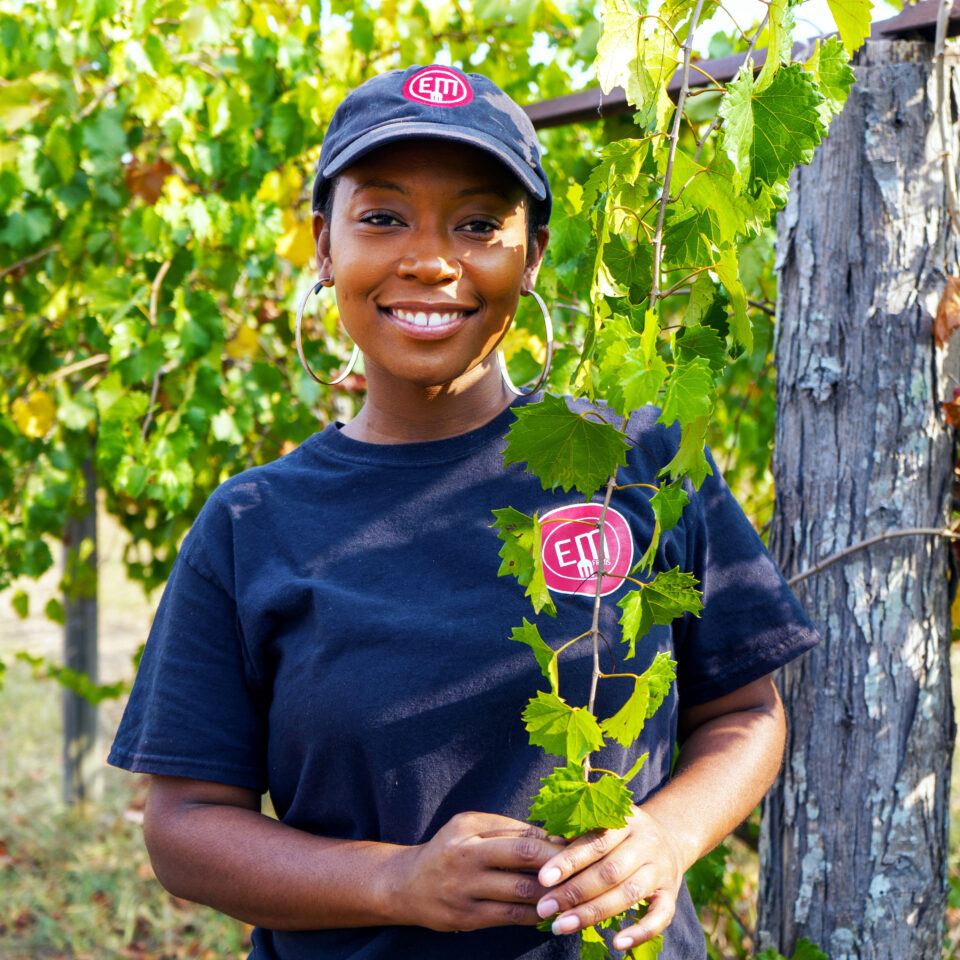
I plan to use this grant to expand EM farming operations, add a pavilion, and pay off farming debit accumulated over time. Recently I have been thinking of expanding EM into livestock as well.
EM Farms provides seasonal fruits and vegetables along with our hand-crafted value-added goods such as peach preserves, pepper sauce, and pepper jelly. We love to host agri-tourism events such as our EM-To-Table dinners and Haunted Forest.

James Mosbey II
Liberty Village, Texas
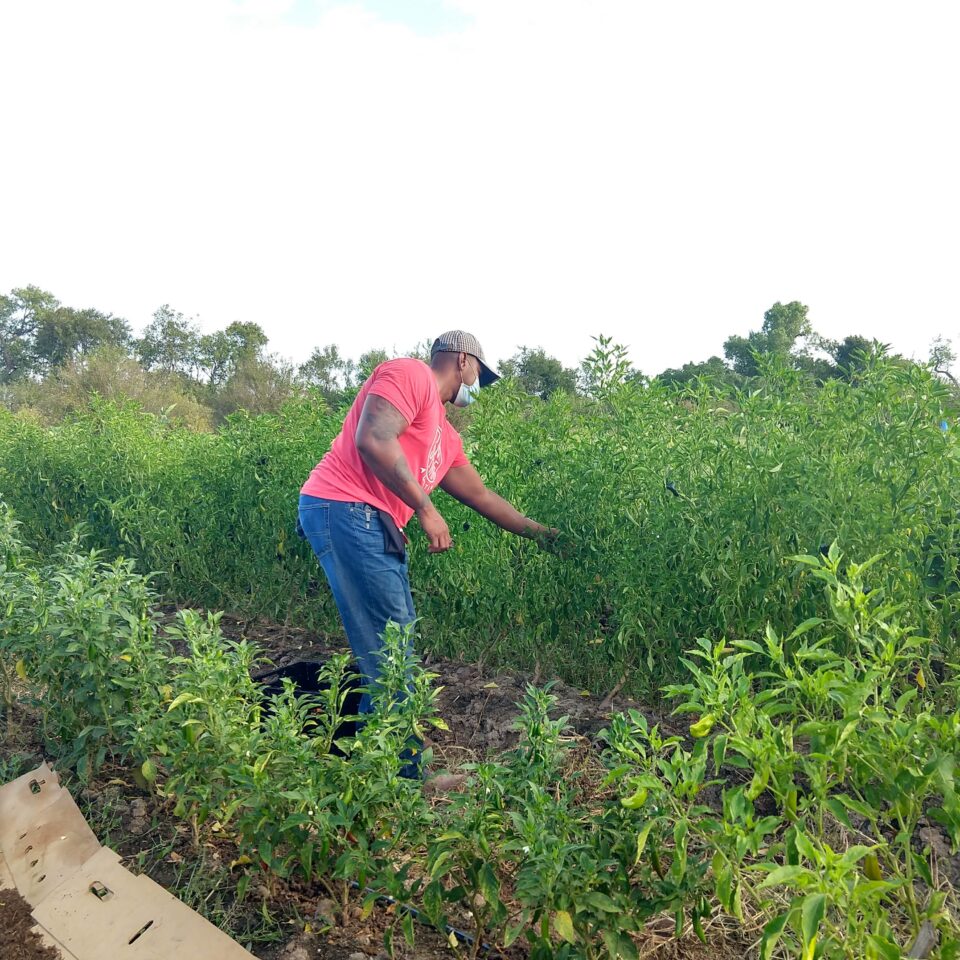
Thanks to the resources provided through this grant we will be able to clear a portion of our property to increase production space and purchase equipment for weed suppression materials along with natural materials to improve soil health and increase organic matter. We will also be able to purchase equipment to help with some of the administrative business aspects of farming to help keep us organized and retain good records, as well as expand our networking potential. Let’s grow together!
My wife, Ashley, and I were born and raised in Texas and never had experience or education in agriculture when we felt inspired to go into farming. We have been so fortunate to have been introduced to someone who is connected with local farmers who now is over a food access program that led us to developing relationships with a couple of farmers who warmly accepted us to be our mentors. I was able to attend a farmer starter program where I received invaluable resources, experience, support, relationships and certification through Farmshare Austin and hope for my wife to do the same next season. And we put our own property into production all in just a little over a year! We decided from the beginning to go into growing a variety of vegetables and fruits as well as cut flowers.

Ginga Newton
Growing Together, Minnesota
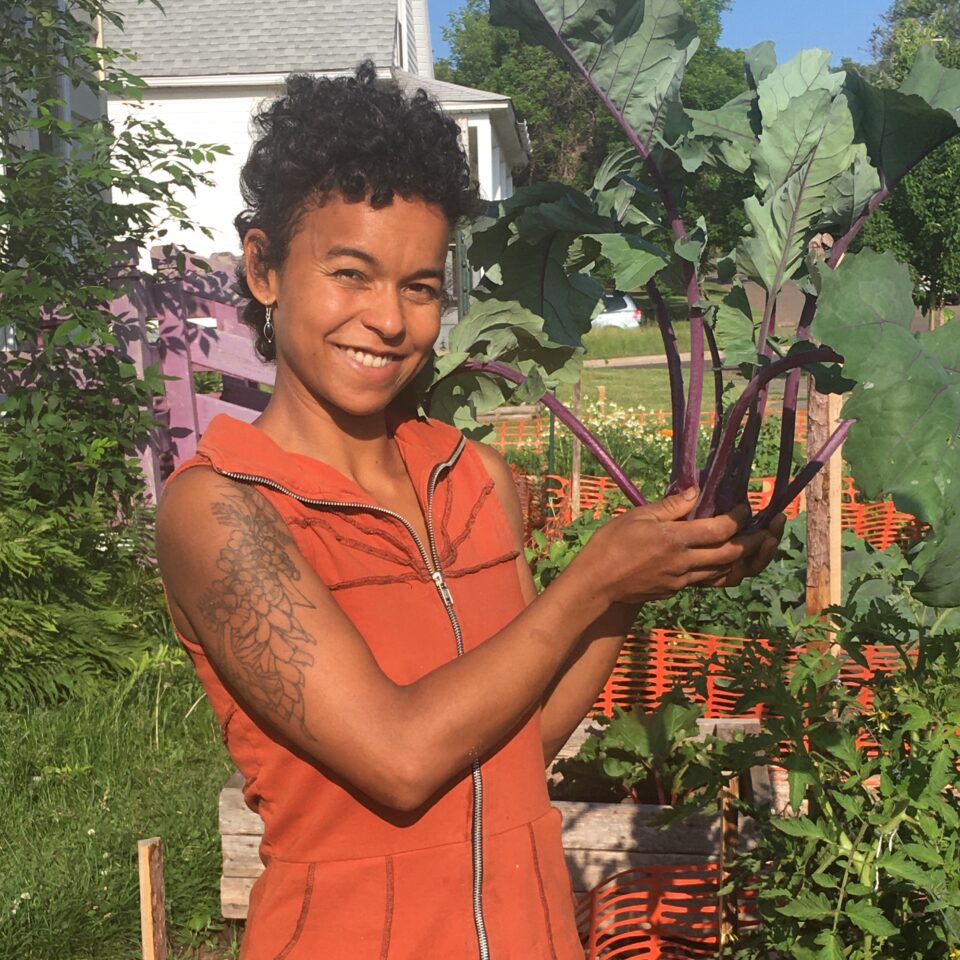
I’m so grateful to receive this grant! This is our second year of production and we are blessed to be growing 4 times as much produce this year. We are in extreme need of a cold storage unit!! Being able to store our produce effectively and efficiently is vital to our sustainability, and we will be using this grant to purchase one, as well as build up our irrigation system.
My name is Ginga Beleza Newton and I own and operate Growing Together, a nano-farm which grows produce for our local community through various direct sale outlets. We operate a small urban farm and orchard with raised beds, as well as a nano-agricultural site. I am passionate about feeding people, strengthening our local food system, and educating/inspiring others to take control of their whole wellness through gardening/farming and learning about the power of food medicine.

Tonni Oberly
Oaks & Sprouts Limited, Ohio
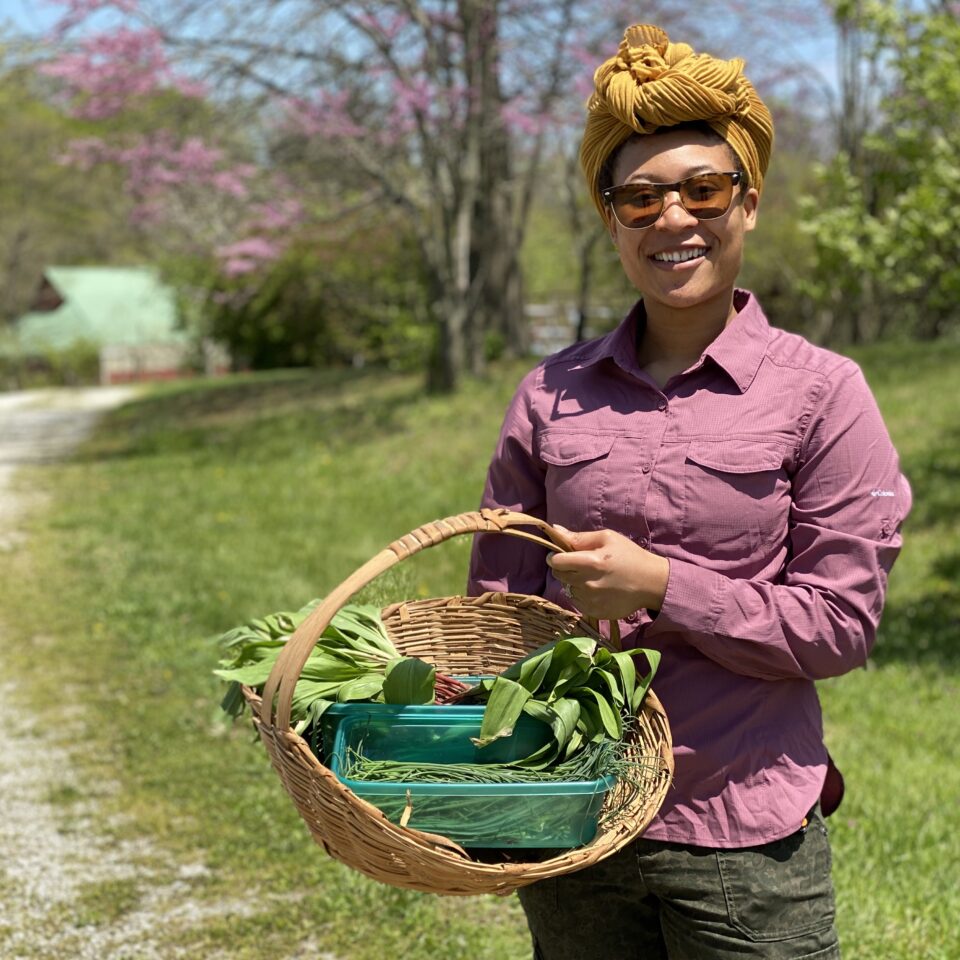
This is our farm’s first year of operation, and we are excited to implement regenerative and organic techniques to grow food and raise animals in a way that results in healthy food and a healthy ecosystem. We plan to use these funds to support a staff member.
I am the co-owner (with my husband) and operator of Oaks and Sprouts, located in Urbana, Ohio. My background is in public health with an emphasis on maternal and child health outcomes in the Black community. I am a researcher, PhD student, and doula and am passionate about environmental and food justice.

Dania Ortiz Flores
Global Village at Tuck Away Farm LLC, Massachusetts
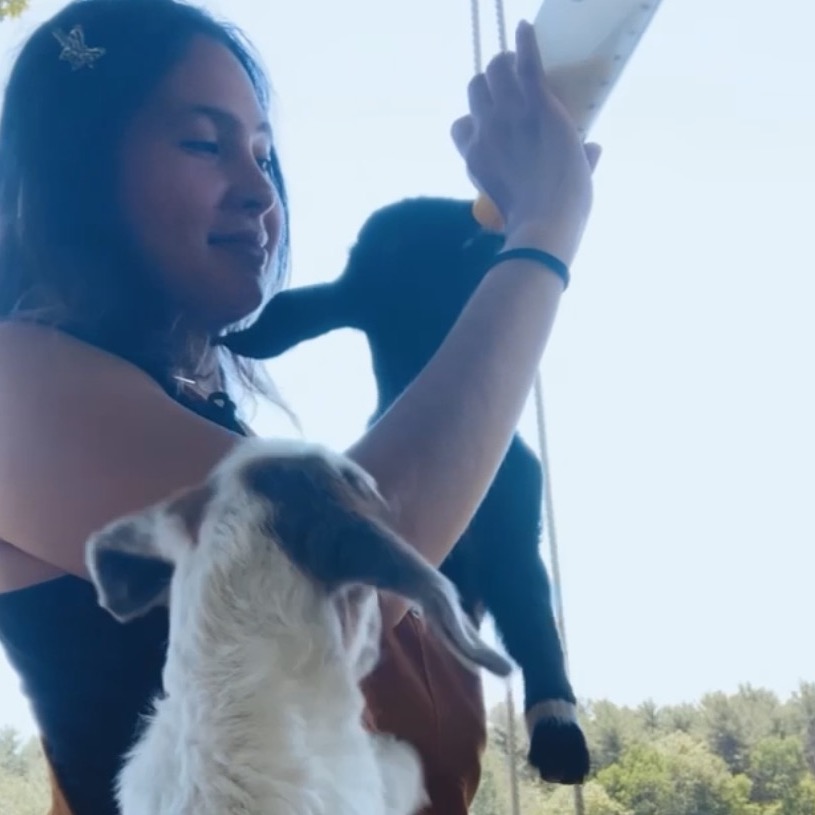
We hope to resume workshops along with hosting spiritual and healing retreats with our community post-pandemic. We are incredibly grateful for this opportunity and the good it will bring.
I am a migrant farmer (she/her) hoping to bring people together through food and land justice. This is my second farming season with Global Village and I feel so lucky to be a part of this organization. This funding will help our goal of providing jobs for migrant workers as well as bringing affordable and sustainably grown food to the community.

Antonia Perez
Herban Cura, New York
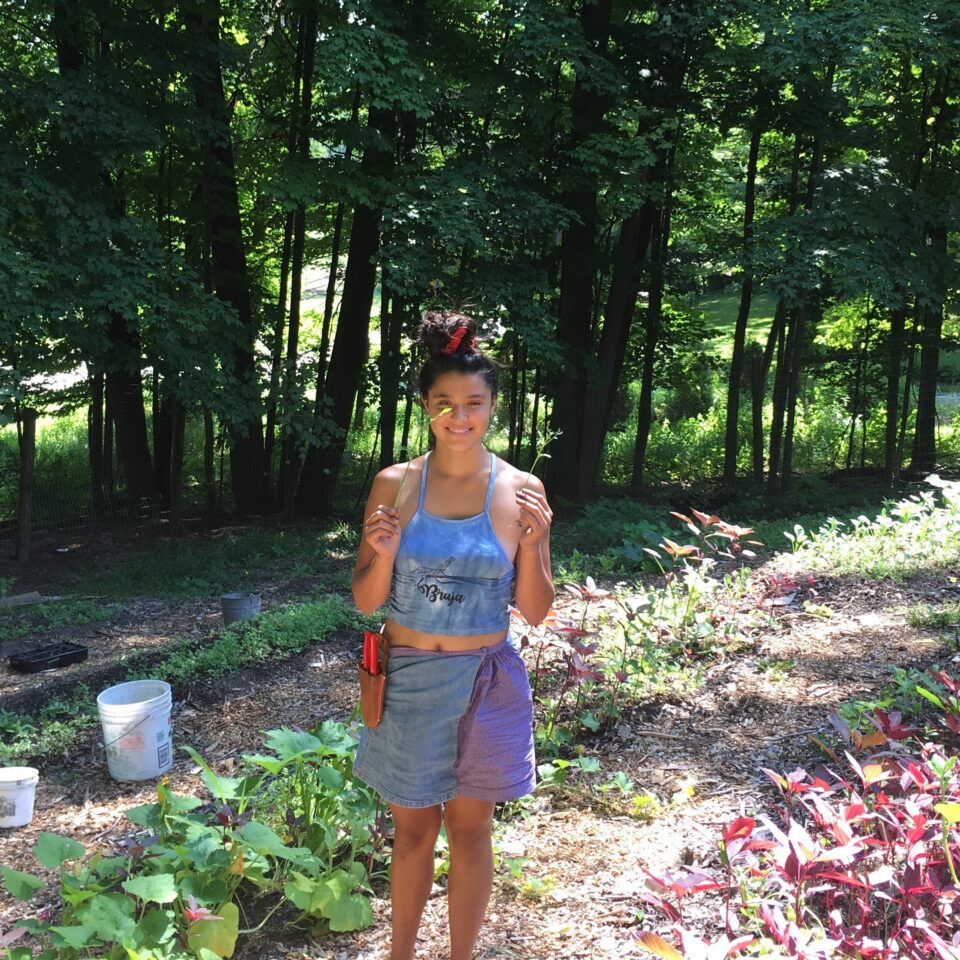
Antonia is working with Sweet Freedom Farm, growing food and medicinals, and Herban Cura, creating accessible programming related to herbs and ancestral foods. These funds will support growing herbal medicine for Hudson, and incarcerated and urban communities in New York. Their ultimate goal is to expand their current production of herbs to be able to produce enough herbs to support the growing demands of herbal medicine.
Antonia is a clinical herbalist, gardener, artist, and co-founder of collectives Brujas and Herban Cura. They are first-gen, born and raised in NYC (Lenape territory). Descended from Mapuche peoples of Chile, their practice is rooted in their cultural lineage and is deeply informed by apprenticeships with herbalists around the Northeast, Central and South America, as well as in Thailand. Their background is in community work – they have been a community organizer, gardener, and food and environmental justice educator for over a decade. They also have a BA in environmental and urban studies from Bard College. They are passionate about sharing their knowledge with other folks, especially in urban centers, in order to interrupt notions of individualism and separatism from nature and grow towards collaborative and symbiotic communities.

Kelly Peters
Flat Tack Farm, Washington
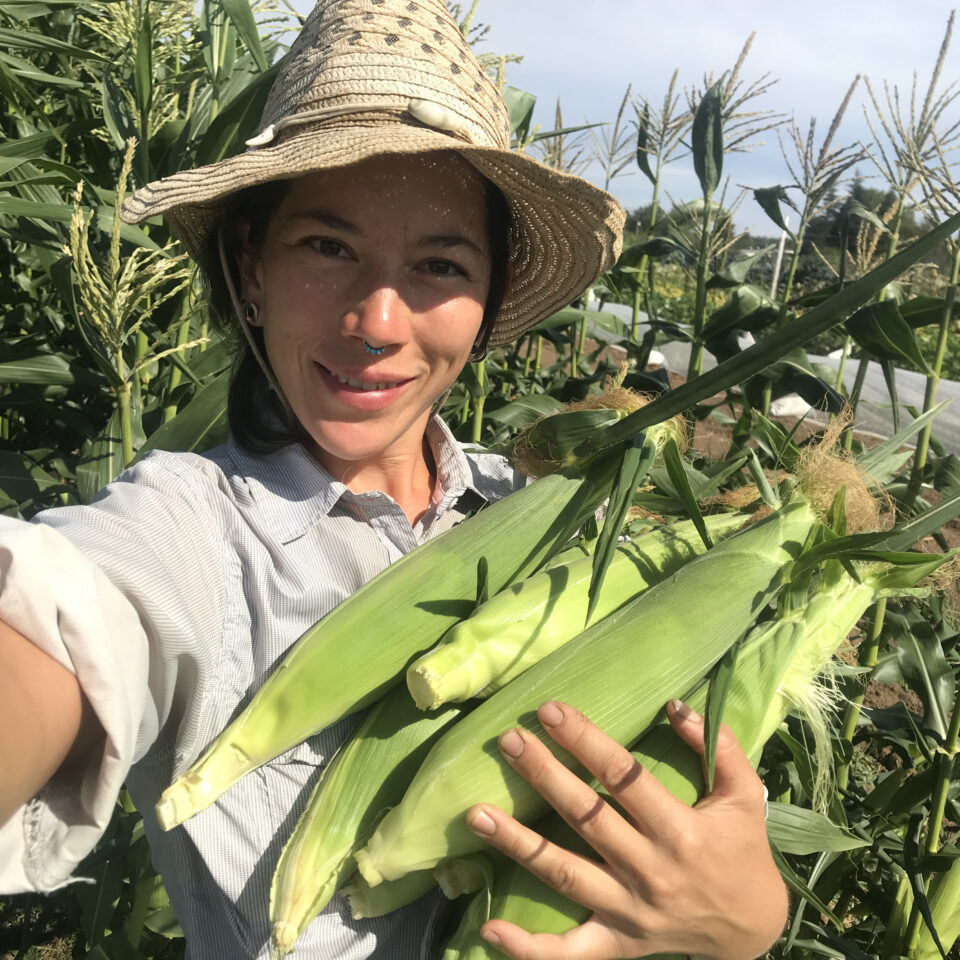
With this grant we are able to purchase the needed materials to expand our operations (like a transplanter, upgrading our wash and pack station, and cooling systems). We also hope to solidify our joint venture into a larger cooperative that focuses on educating beginning farmers and banding together to secure land.
Flat Tack Farm is a small-scale farm in Vancouver, Washington. We specialize in growing a wide variety of produce (veggies and some fruit), all without the use of harmful pesticides, chemicals, or synthetic fertilizers, while focusing on improving the land to a healthier state using holistic, all natural practices. We are powered by hope for a healthier future, love of delicious and nutritious food, and a will to create a garden that gives back more to the earth than it is taking out. We provide food to our local community via memberships, the local farmers market, as well as the food bank and local restaurants. This season we are expanding to 2 acres of production and getting Organic Certification. We are working on a collaborative farming effort with other young farmers that do not have access to land. By collaborating our efforts we hope to increase land access and security, reduce input requirements, and share the labor.

Tadilka Rivera
La microFinca, Puerto Rico
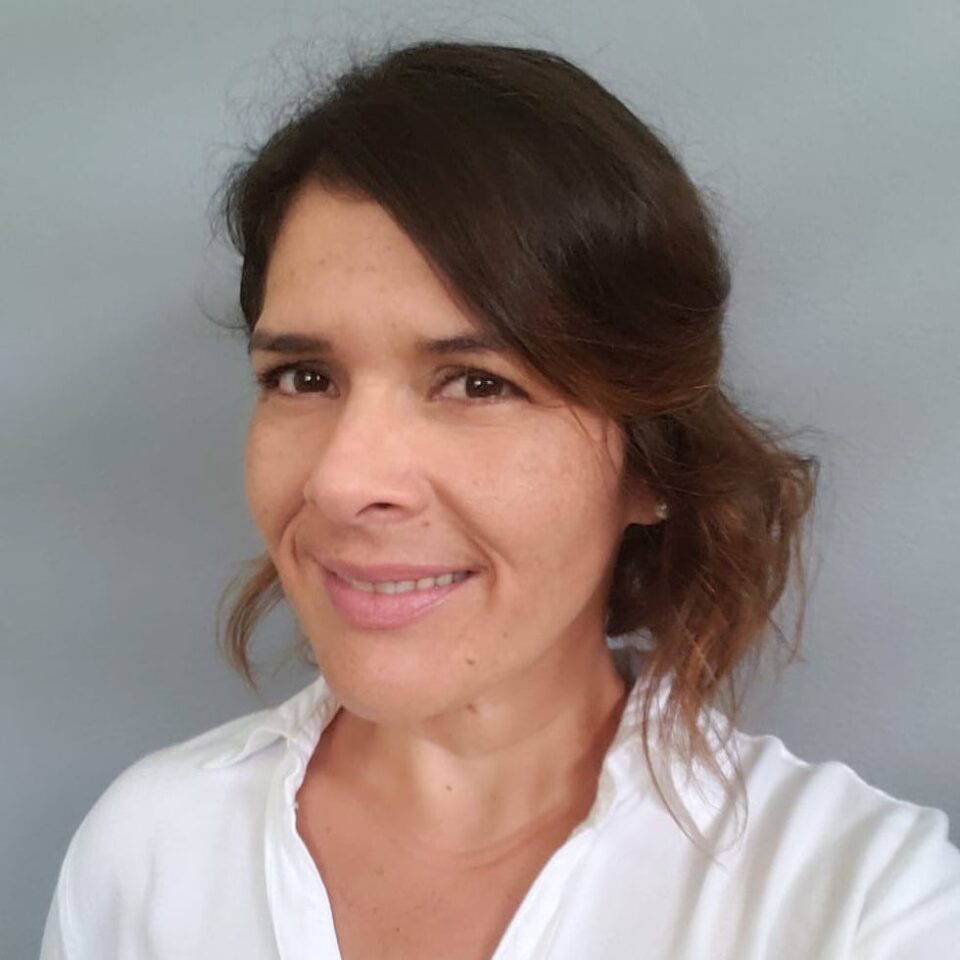
The grant will help Tadilka complete payments on a high tunnel and the farm vehicle.
Tadilka M. Rivera Méndez is an agroecological female farmer and owner of la microFinca, a small farm located in Camuy, Puerto Rico. La microFinca grows microgreens, a variety of greens and small roots (kale, arugula, bok choi, green mix, radishes, turnips, beets, and carrots), and eggplants, green bananas, and plantains. In the last few months she incorporated three beehives and yellow yautia crops in the farm.

Ana Rodriguez
Finca Unagua, Puerto Rico
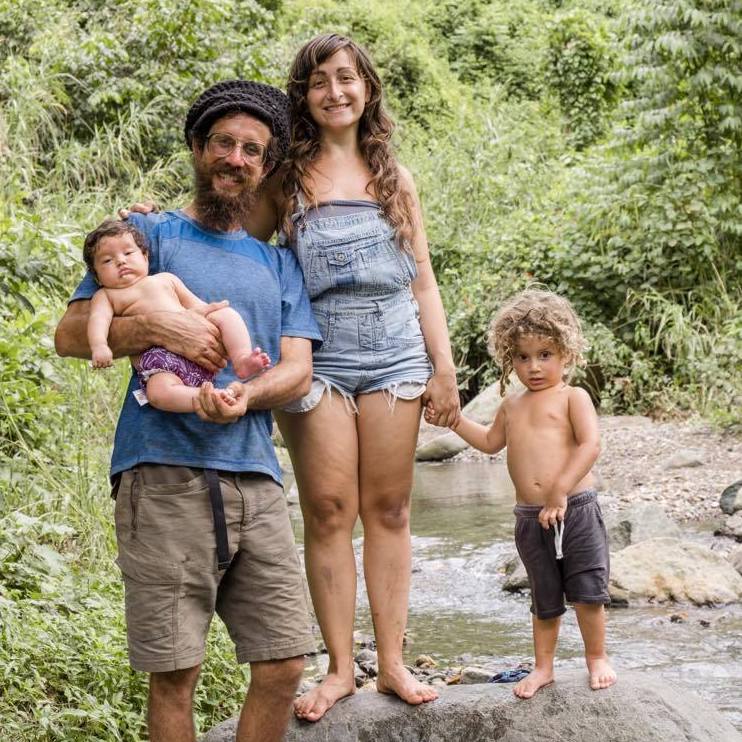
Esta subvención nos posibilitará construir un vivero de alta calidad que maximice nuestro rendimiento y producción en cuanto a la propagación de árboles, plantas medicinales y cultivos de alimento.
Soy Ana Cristina, una parte del proyecto de finca familiar nombrado Finca Unagua, en las montañas de Las Marías, Borikén. Nuestro rezo es el cuido de la tierra y el desarrollo de una relación armoniosa con ella, para dejar un legado a nuestros hijos y comunidad.

Chana Rusanov
Linke Fligl, New York
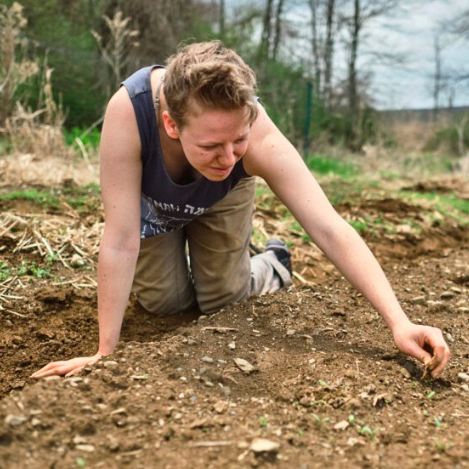
They are looking forward to using the resources from NYFC to increased garden capacity, preservation of the harvest, and farm education in the coming season.
Chana (they/them) has been raising chickens and thinking about diasporism and land connection with Linke Fligl since spring 2018, following two seasons as a farm apprentice with ADAMAH. Chana is the farmer and educator at Linke Fligl, a queer Jewish chicken farm and cultural organizing project building a radical diasporic Jewish future rooted in land, tradition, healing, and justice.

Jade Sato
Minoru Farm, Colorado
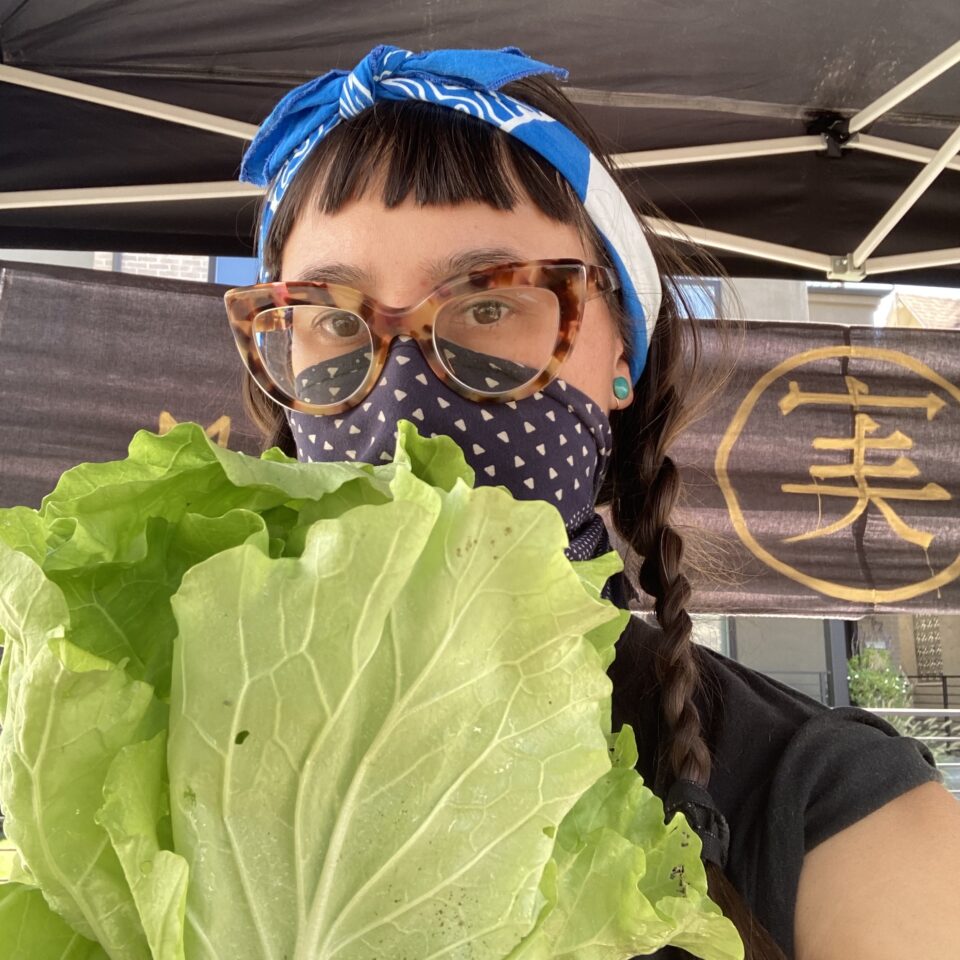
This grant will provide me the opportunity to hire another farmer and pay them a living wage, produce more food, feed more people in the community, and have a stronger foundation for year around production.
Hi, I am Jade Sato, the owner/farmer of Minoru Farm located on occupied leased land of the Arapahoe, Cheyenne, Sioux, and Ute tribes, also known as Brighton, Colorado. I am heading into the second growing season of Asian vegetable production and establishing no-till natural farming methods on two acres.

Sergio Schwartz
Del Cielo Farm, New Mexico
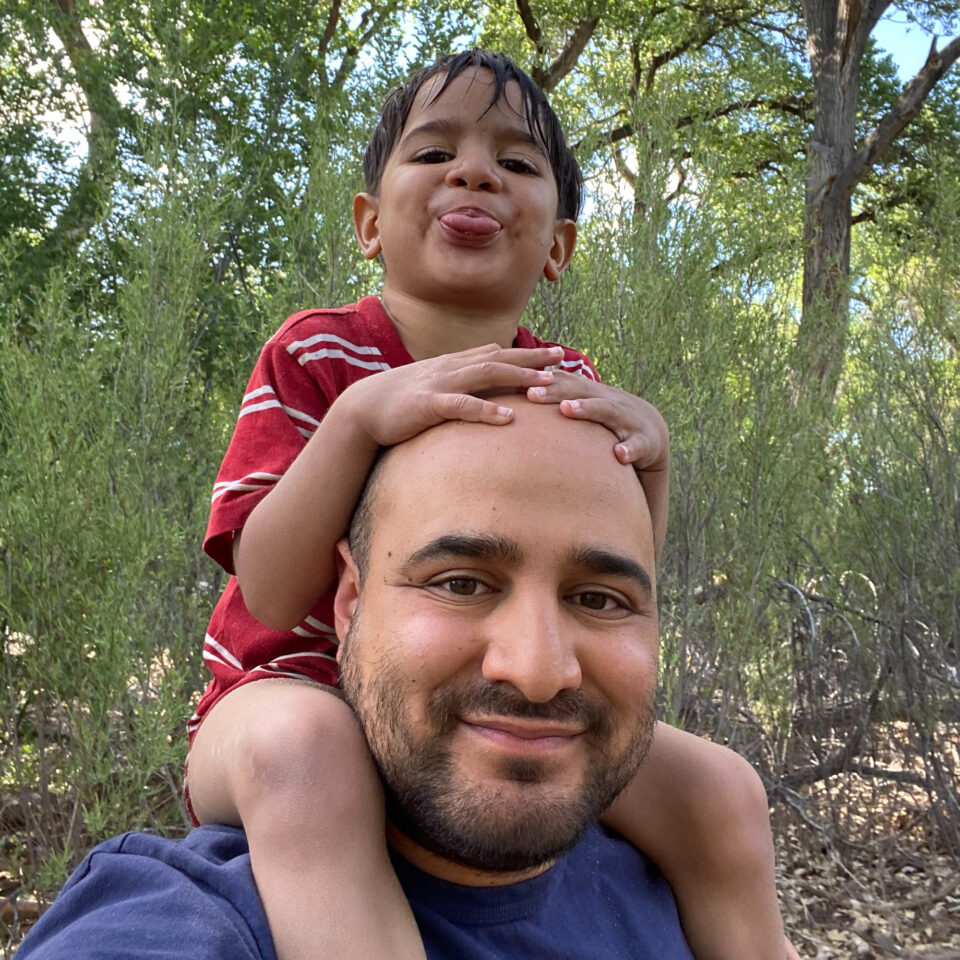
With this grant money we are sinking a shallow well to irrigate our fields, paying for the labor costs of cover cropping and building our soil health, and installing a gate to secure the property.
Del Cielo is budding into its first year as a farm in the South Valley of Albuquerque, New Mexico — striving to be intentional and reciprocal regarding the natural, cultural, and spiritual impacts of our work with our community and the land, looking generations into the future. Long-term, we envision Del Cielo as a vibrant, community-focused farm hub supporting and expanding food sovereignty in the South Valley. This year we are concentrating on establishing a food forest and native perennials, selling cut flowers and vegetables, and creating connections with local organizations and individuals.

Juan Serrano
Redbrooke Ranch, Tennessee
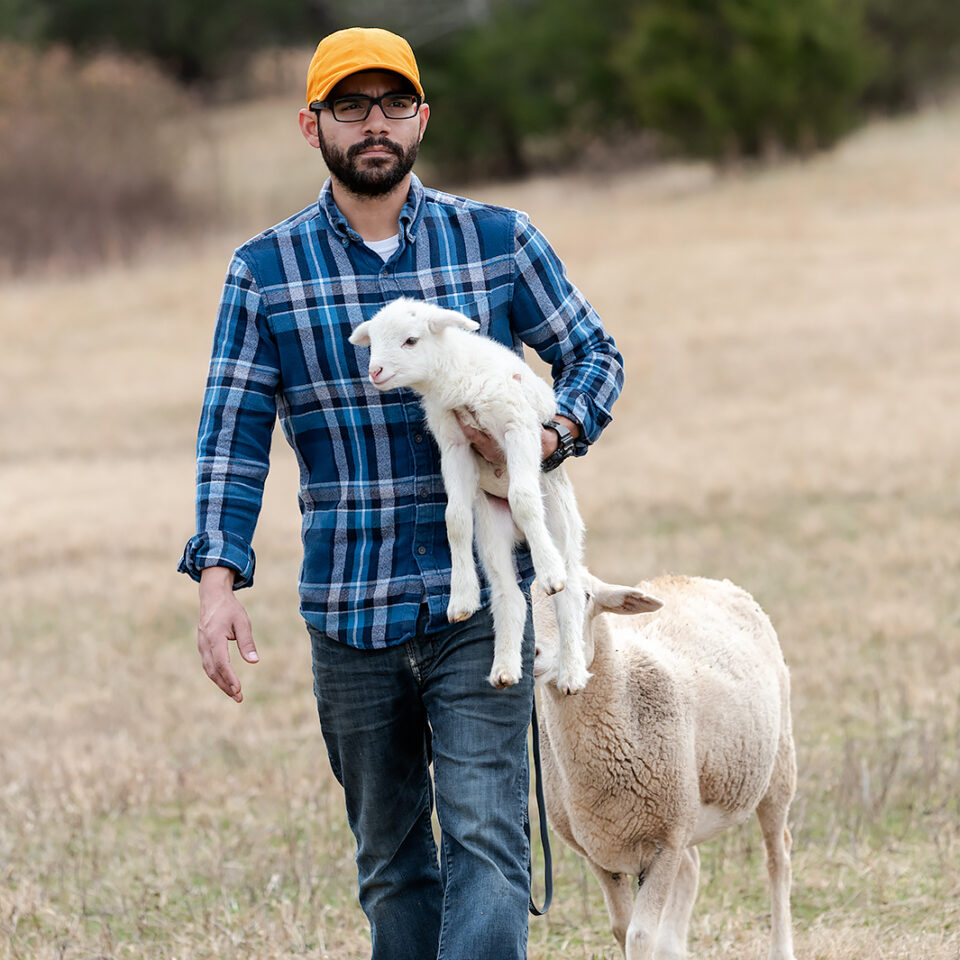
Juan plans on using the funding for fencing to better utilize the available land, sheep shelters, and to obtain a TN Small Ruminant Master Producer certificate.
Juan grew up in inner city Philadelphia, PA and has now become a first-generation sheep farmer on Redbrooke Ranch with his wife in Tennessee. He strives to produce sustainable meat and breeds animals that are happy and healthy with the least amount of intervention as possible. The farm produces lamb, eggs, and seasonal turkey, and does so while always prioritizing the environment and the well-being of the livestock — he only provides the kind of food he can take pride in.

Simiya Sudduth
Tha Muthaship, Missouri
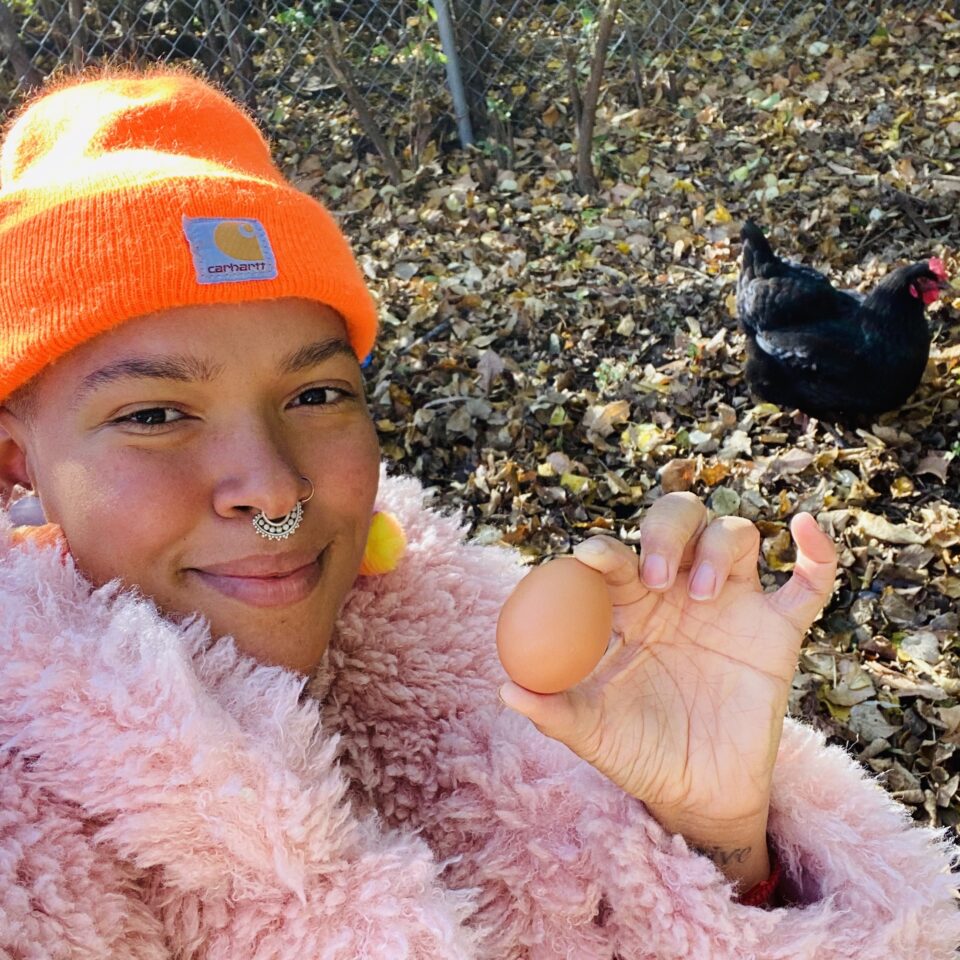
The Young Farmers grant will be used to support start-up costs to create a regenerative agriculture and permaculture-based urban farm that centers food and health sovereignty for people of color by growing organic medicinal and culinary herbs, vegetables, and microgreens.
Simiya is a mother, wellness practitioner, and visual and social practice-based artist with a background in sculpture and landscape architecture who is passionate about plants, sustainable and ecological design, access to healthy foods, holistic nutrition, and wellness. Simiya is combining her practice as an artist with her passions, education, and experience as a doula, bodyworker, and yoga and meditation teacher to create Tha Muthaship Urban Farm in St. Louis, MO within a collaborative growing space called The Afrofuturist Farm Collaborative.

Dreu VanHoose
VanHoose Hemp Co., Alabama
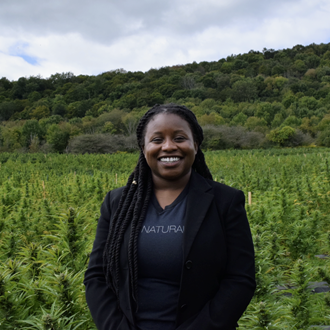
VanHoose Hemp Co. will use this money to fund costs associated with field prep and maintenance as well as help to expand our indoor greenhouse operations. We are truly grateful for the National Young Farmers Coalition and the assistance, guidance, and support they provide to young farmers.
I am Dreu VanHoose, I am 28 Years old, and my company is VanHoose Hemp Co. VanHoose Hemp Co is a minority- and woman- owned family business offering organic, sustainable hemp products straight from our family farm to the community.

Riann Wakefield
Wakefield Coffee & Tea LLC, Hawaii
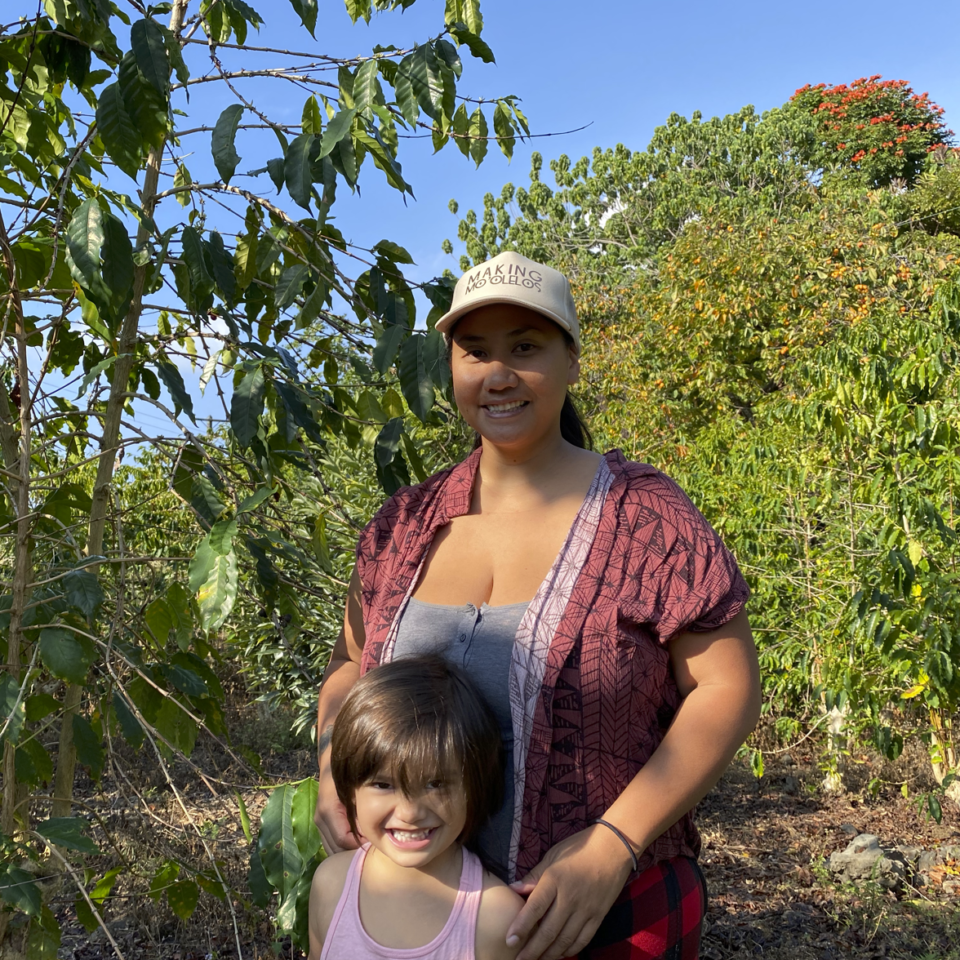
With the help of this funding, we plan to build a fence to protect our tea growing project from feral ungulates and start planting our organic native Hawaiian teas. We plan to incorporate Indigenous planting techniques and knowledge within our operation.
As a mother of four, born and raised in Hawaii, there has always been a connection to the ‘aina (land) for my family and I. We are a small ohana (family) based operation in Kona on the Big Island. We are currently growing coffee for our business Wakefield Coffee & Tea LLC. Our plan is to also grow native Hawaiian teas for the tea portion of our operation.

Isis Walls
Five Finger Farms, California
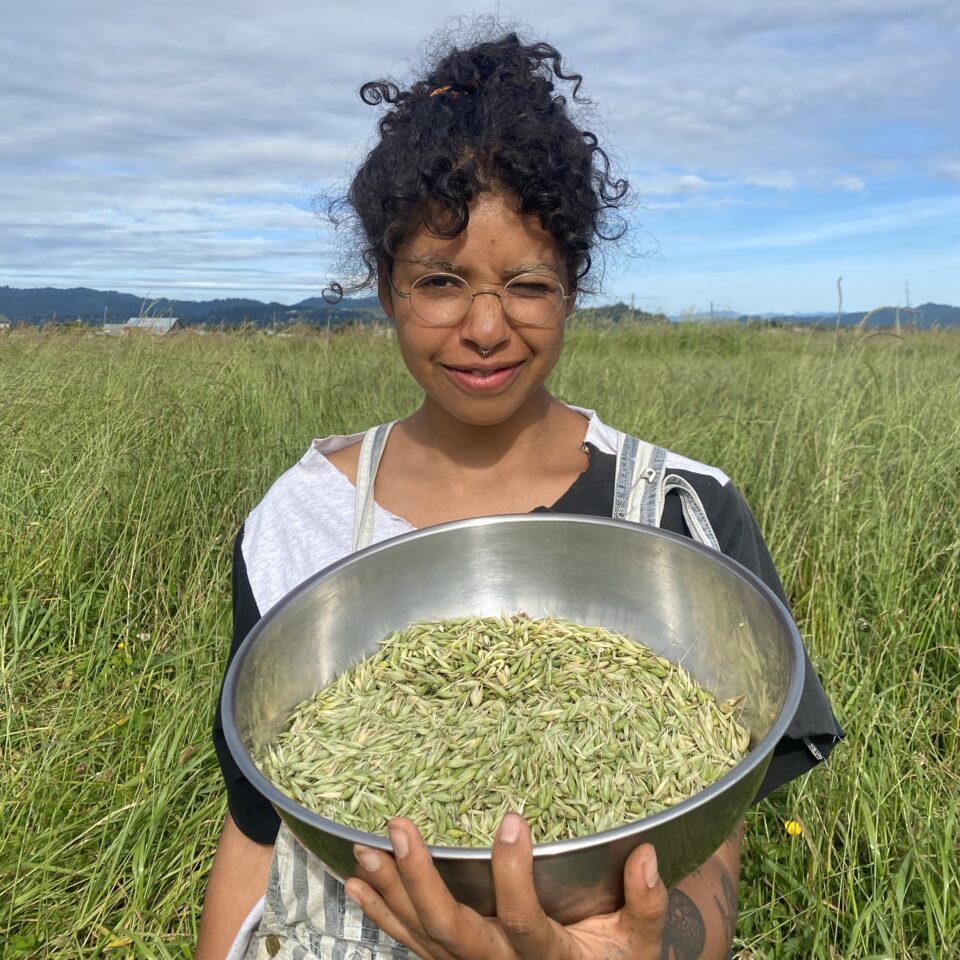
Young Farmers Grant funding will is being used to obtain Organic Certification, laboratory analysis of their herb drying process, and leasing of a commercial kitchen to expand product offerings. They are excited to use this boost to experiment with new ways of sharing herbal medicine with more people!
Five Finger Farms is located in the Eel River valley on Wiyot ancestral land in Northern California. Started by Isis Walls and Jacob Ferdman in 2019, they specialize in growing medicinal herbs, roots and flowers including Calendula, Chamomile, Ashwagandha, Lemon Balm, Marshmallow Root and Milky Oats.
